













by






















by







It was a moment laden with both hope and heartbreak. Three young women, Emily Damari, Doron Steinbrecher and Romi Gonen, stepped free from Gaza after 471 days of brutal captivity.
For Donald Trump, it was a moment to claim success. The deal had been brokered by his “pitbull” Middle East envoy Steve Witkoff, a billionaire real estate businessman who had nipped and snarled at the Israeli and Hamas negotiators until they emerged with the last-minute compromise in Doha, the Qatari capital.
Trump maintained: “The hostages are starting to come back. If I weren’t here, they wouldn’t be back ever. They would have never come back. They would have all died.”
A number of hostages released and rescued in 2023 and 2024, including Noa Argamani, attended his inauguration on Monday.
The deal allows for a ceasefire between Israel and Hamas, a staggered release of hostages, both alive and dead, and the release of hundreds of Palestinians held in prison in Israel, for offences ranging from multiple acts of terrorism to stone-throwing and speeches supporting Hamas.



of the Red Cross vehicles taking the women to freedom.

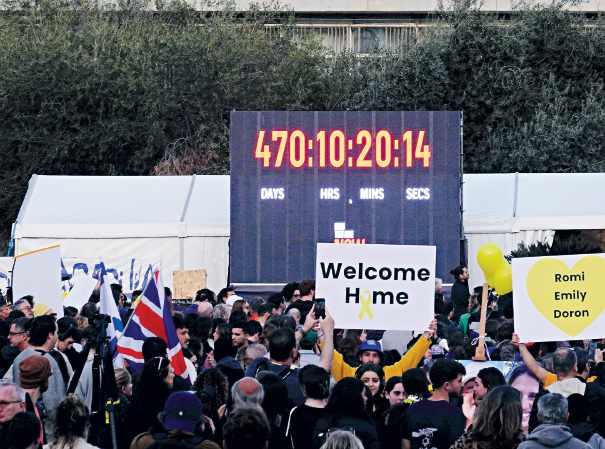

Israeli hostage families and the Jewish world collectively held their breath on Sunday as the implementation of the deal was delayed by several hours, with Hamas blaming “technical issues”.
Eventually, however, the first pictures emerged of British-Israeli Emily Damari, together with Doron Steinbrecher and Romi Gonen, struggling through an intimidating crowd of armed, green-uniformed Hamas members, standing on top
Most cynical of all appeared to be three paper “goodie bags” handed to the women through the Red Cross car windows, complete with a certificate stapled on the outside, perhaps signifying their “graduation” from being hostages.
And then there were, tear-jerking pictures of each of the three women being reunited with their mothers, and wider families, all hugging as though none of them could believe the reality of what was happening.
The following day they began to share details of their 15-month ordeal. The women reported being



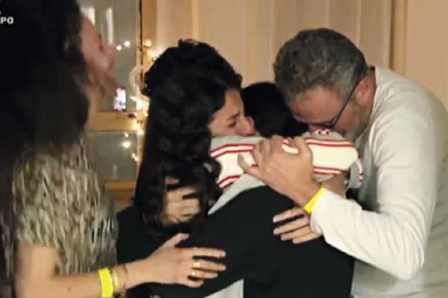

held in dark, crowded spaces with limited access to daylight.
Food and water were scarce, leading to weight loss and malnutrition. Some hostages were forced
to undergo medical procedures without anesthesia, and there were accounts of physical abuse, including beatings and burnings.
One of the women, who has not
been identified by name, described the transfer as terrifying, saying: “We were scared to death at the transfer point, from the combination of the armed terrorists and the Gazan crowd.”
At Ofer Prison in the West Bank, meanwhile, 90 Palestinians were released to their families. Israel tried, unsuccessfully, to clamp down on celebrations of this first release; and though the ceasefire between Israel and Hamas in Gaza was holding in a fragile fashion in these first days, Israel has continued to act against Palestinian violence in the West Bank.
It was also a week of resignations: Itamar Ben-Gvir, the far-right politician and leader of the Jewish Power party in Benjamin Netanyahu’s governing coalition, resigned as minister of national security in protest at the ceasefire deal, pulling out his party, which held six seats in the Knesset, at the same time. BenGvir had openly claimed credit for delaying ceasefire negotiations in the last 15 months of war.
Also resigning was the IDF’s chief

Days after the first Palestinian prisoners were released by Israel as part of the hostages-ceasefire deal, details emerged about who was being freed and of what they were convicted.
Pro-Palestinian supporters claimed that the majority of the 90 people released on Sunday, in exchange for just three Israeli women hostages held in Gaza, were women in Israel’s administrative detention and “children”.
In fact, data released by the Israeli Jus-
tice Ministry show a different picture: the list “includes individuals previously detained on charges related to terrorism or activities considered a threat to public safety”.
The ministry says that “90 percent of all released prisoners are male; 96 percent are over 18 and the median age is 44”, while “only 6.5 percent were held under administrative detention”.
Additionally, it says, “38.7 percent of prisoners were serving life sentences, while 44.7 percent
were serving eight years or longer. The remaining prisoners had not yet been handed a sentence.”
Among those released on Sunday was Bushra al-Tawil, a 32-year-old journalist who has spent more than five years in Israeli jails, though not concurrently.
She told the BBC she had always been held without charge, most recently since March 2024, apart from on one occasion when she was prosecuted over a talk she gave in a mosque.


of sta Lt-General Herzi Halevi, who told Benjamin Netanyahu that he had failed in his duty to prevent the 7 October attacks.
He will conclude his tenure on 6 March and his resignation marks the highest profile departure of an Israeli in the security establishment since the war began in October 2023. He concluded his resignation letter by saying: “I will always be a soldier of the state of Israel.”
In Washington, meanwhile, President Trump issued an executive order lifting sanctions against violent Israeli settlers in the West Bank, imposed by Joe Biden in February last year.
His move was made as renewed violence broke out this week by West Bank settlers on homes and vehicles owned by Palestinians, in which 21 Palestinians were said to have been injured.



Gaza. He reimposed sanctions on International Criminal Court o cials, said to have been instrumental in targeting Americans and Israelis.
Likud politician David Amsalem, minister of regional co-operation, predicted that the deal would not hold and that the IDF should go back into Gaza to “finish the job”.
The Palestinian Ministry of Foreign A airs said in a statement: “Lifting sanctions

against our people.”
Trump also reversed other decisions made by the Biden administration, including halting funding to the relief agency, UNRWA, the principal body working with Palestinians in the West Bank and
Keir Starmer has o ered his thanks to Benjamin Netanyahu for the work done by the Israeli government in securing Emily’s release.
Speaking with the Israeli prime minister by telephone on Tuesday, Starmer also o ered the UK’s support for the hard-fought ceasefire deal between Israel and Hamas, then in its third day.
The prime minister said: “To see the pictures of Emily finally back in her family’s arms was a wonderful moment but a reminder of the human cost of the conflict.”
Netanyahu and Starmer moved on to discuss the need for the next stages of the ceasefire deal to be implemented in full and on schedule, including the release of the remaining hostages. During the conversation No 10 said Starmer reiterated that it was vital to ensure that humanitarian aid can now flow uninterrupted into Gaza, to support the Pal-
estinians who need it.
“The prime minister began by o ering the UK’s support for the hard-fought and longawaited ceasefire deal between Israel and Hamas, which has now entered its third day,” Downing Street confirmed, before congratulating Netanyahu over the release of 28-year-old Damari.
As for future developments, both leaders “agreed we must work towards a permanent and peaceful solution that guarantees Israel’s security and stability”.
Starmer said the UK “stands ready to do everything it can to support a political process, which should also lead to a viable and sovereign Palestinian state”.
No 10 added: “They agreed to continue their close cooperation on defence and security matters in support of stability in the region –particularly in the face of the ongoing threat posed by Iran.”
• My brother’s killer will be released, p4



Among those said to be on the list for release in the next stages of the deal is Zakaria Zubeidi, 49, imprisoned in 2019 for his role in the Beit El shootings on the West Bank. He is also understood to have been involved in a number of terror attacks, including a Beit She’an bombing that killed six people in 2002.
Mahmud Abu Warda is serving 48 life sentences for plotting multiple terror attacks including in Jerusalem in 1996, when 45 Israelis were killed in two bus bombings. Also on the release list are said to be Wissam Abbasi, Mohammad Odeh, and Wael Qassim, three members of the so-
called Silwan Squadron, jailed in 2002 over bombings that killed more than 30 Israelis in Jerusalem.
Israeli media has reported that Khalida Jarrar, leader of the left-wing Popular Front for the Liberation of Palestine (PFLP), will be freed. And Khalil Yusef Ali Jabarin, imprisoned for the murder of activist Ari Fuld in 2018, is also thought to be on the list.
In the first phase of the ceasefire deal, 1,800 more Palestinian prisoners are due to be released. Those convicted of murder are thought likely to be deported to places such as Qatar and Turkey.
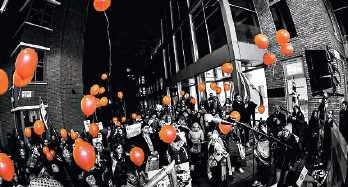
The second birthday of Kfir Bibas, kidnapped by Hamas at just nine months old, has been marked at a London vigil.
It was held next to the headquarters of Save the Children UK following news about the hostages-ceasefire deal signed the day before. Attendees and campaigners prayed and called for the immediate release of Kfir and the other 97 hostages.
Speakers included Moshe Levi, a brother-in-law of hostage Omri Miran, and Yotam Cohen, brother of hostage Nimrod Cohen, both kidnapped from Kibbutz Nahal Oz on 7 October.
Also present were Israel advocate and public speaker Hen Mazzig, former Israeli government spokesman Eylon Levy, and co-founder of the Remember 7.10 campaign Florit Shoihet.
A message from Ofri Bibas, Kfir’s aunt was broadcast, alongside a message from Thomas Hand and his daughter Emily, a former hostage who was kidnapped at the age of eight. Senior representatives from Save the Children also attended.
Just before the event began, an individual attacked the crowd. According to eyewitnesses, a young anonymous man scouted the gathering for about 15 minutes before going to destroy a display of toys for Kfir. He smashed personal belongings, and stormed into the crowd screaming “free Palestine”.


Noa Argamani, the hostage rescued from Gaza – along with families of those still held by Hamas – were given front row seats at Donald Trump’s inauguration, writes Lee Harpin Steve Witkoff, Trump’s Middle East envoy, told the audience at the event in Washington DC’s Capitol One Arena on Monday that relatives and released hostages were in attendance “because they’re part of an effort to retrieve their bodies so they can be buried in a proper way”.
To loud applause from the audience, Witkoff then invited the families on to the stage to shake hands with the new US president and other dignitaries.
As crowds in the arena clapped, the hostages’ family members stood in a line wearing yellow scarves and holding photos of their family members kidnapped by Hamas on 7 October 2023.
When the president spoke, Argamani, rescued last June by the IDF after 245 days in captivity, was seen standing directly behind him.
Argamani was 25 when she was abducted from the Nova Music Festival by terrorists on a motorbike. Footage of her being taken, as she yelled “Don’t kill me”, became one of the defining images of the attack.
Her terminally-ill mother, who had appealed for her release, lived
‘MY
long enough to see her return from captivity and died three weeks later.
In a reference to the hostages Trump said in his speech: “So now the work begins. We won. We won. But now the work begins. We have to bring them home.”
He had made an earlier reference to the hostages in his first inauguration speech. But in a move that angered some commentators Trump then made several references to those convicted of or charged with crimes related to the 6 January Capitol riot four years ago as “hostages”. He confirmed his plan to sign an executive order later on Monday for what he called the “J6 hostages”.
Speaking later at the Oval Office, Trump has said he is “not confident” the Gaza ceasefire and hostage release deal will be upheld through all three phases. Asked by journalists about his view on the deal, he said: “It’s not our war. It is their war. I am not confident. But he appeared to reference Hamas when he said: “But I think they’re very weakened on the other side.”
Admitting that the Gaza Strip now looked like “a massive demolition site”, Trump said it will have to be “rebuilt in a different way”.
He added that Gaza is in a “phenomenal location” along the Mediterranean, with the “best weather”,

and that “beautiful things could be done over there, fantastic things”.
In further comments Trump said he believes an Israeli-Saudi Arabian normalisation deal could be reached.
“I think Saudi Arabia will end up being in the Abraham accords. Soon. Not a very long way, ” he told reporters while signing off executive orders on his inauguration day.
Witkoff had also pledged to expand the Abraham Accords, the US-backed agreements struck
during Trump’s first term of office. “A stable and prosperous Middle East is not an unattainable dream. It is a goal within our reach,” Witkoff said, introducing Trump at an inauguration rally.
Trump also signed an executive order on Monday night to protect the United States from “foreign terrorists and other national security and public threats”, which mandates the government to remain “vigilant” in issuing visas to foreign nationals.
Hillel Fuld has called the ceasefire-hostage deal between Israel and Hamas “a terrible but beautiful deal”, as he and his family awaits the release of the murderer of Hillel’s brother, Ari, writes Jenni Frazer. Ari Fuld, like his brother an immigrant to Israel from New York, was a wellknown Israel advocate and activist. He was waiting outside a shopping centre at the Gush Etzion junction in September 2018 when he was stabbed in the back by a teenage Palestinian, Khalil Yusef Jabarin. Ari Fuld managed to shoot Jabarin but collapsed after the stabbing and later died. Jabarin was treated for his wounds in hospital, convicted of Fuld’s murder and sentenced to life in prison.
But Jabarin’s name appears on the list of those Palestinian prisoners due to be released in the ceasefire/hostage deal.
Hillel Fuld, who works in hi-tech and is an assiduous blogger on social media, said that learning Jabarin was due to be released was “like a punch in the gut for me, a punch in the stomach. This guy basically destroyed our family. I mean, we’re still here and we’re thriving, but the
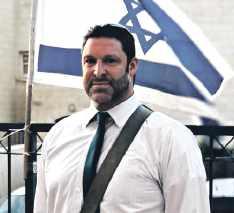
family dynamic with the loss of Ari, that’s changed for ever. The fact that he [Jabarin] is getting out, and my brother Ari is gone — that’s a real punch in the stomach”. Jabarin is not set to be freed until the last part of the deal in several weeks’ time.
Despite a statement from various Israeli bodies including the police, the IDF and the Ministry of Justice that families would be notified and supported when “terrorists involved in the murder of their loved ones” were due to be released, Fuld said he
had not been contacted by anyone in the Israeli government. “Nor, as far as I know, have other members of our family.”
He did not think opposing the deal and release of Palestinians “is the best use of our time”, adding: “We’re focused, as a family, in getting our hostages home. The deal is a terrible deal, but it’s also a beautiful deal. Once the Supreme Court rejected petitions against the deal, I don’t think there’s any action we can take right now.”
On 19 January the Israeli Supreme Court rejected a series of petitions filed against the implementation of the hostage-ceasefire deal with Hamas. The petitions had called for the court to intervene to prevent the release of Palestinian security prisoners but the judges said: “It is not our place or custom to intervene in matters of this type in which the scope of judicial review is extremely narrow.”
Fuld described the deal as something that operated “on two parallel lines, will never meet but which coexist. It is beautiful because it brings our hostages back home, but terrible because it allows terrorists to be released and walk freely”.
The order stresses that those approved for entry must not pose a threat to Americans or national interests. It did not state which organisations were immediately impacted by is believed to signal the end of funding to the Palestinian relief agency UNRWA.
The US had historically been UNRWA largest contributor but had suspended contributions to the agency until March this year.
Trump also revoked an executive order brought in by former president Joe Biden that authorised sanctions on West Bank settler extremists.
In a further controversial moment, billionaire Elon Musk was widely condemned for making what appeared to be a fascist Nazi-style salute at the end of his speech.
Hours later, Musk responded to the criticism of the gesture in a post on X. “Frankly, they need better dirty tricks. The ‘everyone is Hitler’ attack is so tired,” he wrote while reposting a message from 2022 in which he declared that he was no longer a Democrat and as a result was awaiting a “dirty tricks campaign”. Musk had pounded his chest and shot his right arm in an angular motion toward the sky after making a speech celebrating the arrival of the new Trump administration, saying he felt its ideology in his “heart”.
Fans unite for Emily’s return
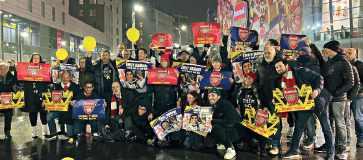
In a moving display of solidarity, Arsenal and Tottenham fans joined forces during the North London derby to call for Hamas to release Emily Damar – just four days before she finally walked free after 471 days in Gaza.
Fans posed for a joint photo outside the stadium before kickoff and the area around the ground was covered with yellow ribbons, a symbol of support for the hostages. On the seventh minute of the match, yellow balloons were released by fans in both the home and away ends. The gesture became a regular occurrence at Tottenham’s home matches, with Spurs fans creating a chant in support of their fellow fan: “She’s one of our own, she’s one of our own, Emily Damari, bring her home”.
Mandy Damari praised Arsenal and Spurs fans for their support, saying: “Emily’s father was a football coach on our kibbutz, and always said football can bring the world together.”
















Middle East minister Hamish Falconer has told Jewish News that his role has given him a “terrible front row set” to the “scurrilous rise in antisemitism”, writes Lee Harpin.
In an interview held six months after he was appointed into the ministerial role by Keir Starmer, the former civil servant, now MP for Lincoln, said he recognised some of the “particular sensitivities” with the UK Jewish community over the government’s approach to policy around Israel.
But he added: “The Jewish community is incredibly important to this government. We have made a real commitment to try to ensure the community got the support they need over what is a scurrilous rise in antisemitism.
“I’m afraid, as the minister for the Middle East, you get a sort of terrible front row seat… all over my social media, and often repeated to me. I am very conscious of what you describe as the defensiveness the Jewish community can feel about these issues.”
But the former diplomat and son of Lord Falconer, who served as lord chancellor and justice secretary under Tony Blair, accepted it was clear that the UK government would continue to have disagreements with the Netanyahu government in Israel.
He added: “We continue to stand with Israel and its legitimate selfdefence against Iran those that wish harm against the Israeli people.”
In a wide-ranging interview Falconer, 39, also made clear his opinion,
which has been influenced by his time working as a civil servant under the previous government, that the regime in Iran represents “a threat to the people in the UK.”
But explaining why the government had not moved to counter this threat by proscribing Iran’s Islamic Revolutionary Guard Corps (IRGC) force which operates abroad, Falconer said “the nature of the threat posed by Iran is clearly linked to the way that state itself behaves”.
He said the Foreign Office in cooperation with colleagues in the Home Office were working on conclusions that could tackle this link, which he hoped would be outlined in the near future. “My view is that the IRGC are a threat to the people of the UK, “the minister said, pointing to the 20-odd plots on British soil with an Iranian hand behind them since 2022.
There is “no doubt” about the danger posed by the organisation, he added, but with his own background in counter-terrorism, Falconer is of the view that this threat is linked to “the way the state itself behaves”.
It was necessary, therefore, he argued, to put in place measures that were specific to this link between the IRGC and the Iranian state itself. The previous proscription of groups like Hamas and Hezbollah did not have to make this connection.
Speaking hours before the ceasefire and hostage deal between Israel and Hamas was confirmed, Falconer was understandably cautious of
An MP on the Interna tional Development select committee has broken ranks to criticise its latest report on Israel.
David Taylor, Labour MP for Hemel Hempstead, issued a statement confirming his disappointment at being “unable to support this International Development committee report”, confirming that he “had to vote against it”. He revealed that he proposed two amendments to the report titled Israel and the Occupied Territories, both of which were rejected.

But Taylor said: “We did not hear from witnesses with a legal background. We do not possess legal expertise,” adding: “I believe we must leave legal matters to those in the field.”
Among the report’s conclusions was a call for the UK government to use the correct term of “forcible transfer” and not describe removal of Palestinians from their land in the West Bank as “displacement”.
One amendment noted that the committee, chaired by Sarah Champion, had tried to make legal judgments on issues being considered by the International Court of Justice.

jeopardising any attempt to bring a pause in the deadly war. But in a statement later on Monday, he said: “The hostage ceasefire deal offers a moment of hope for the Israeli and Palestinian people. This intense diplomatic effort must continue in the days and weeks ahead.”
He told the United Nations in New York that the organisation’s agency for Palestine refugees (UNRWA) faces a cliff edge in its ability to support Palestinian refugees across the West Bank and Gaza.
In the same speech he also urged support for its ability to operate and continue its vital work in Gaza, deliv-
ering aid to those most in need.
During his visit to the UN, the minister also said the UK is increasing its humanitarian spend on Yemen by £5m this financial year, bringing its total commitment to £144m.
Speaking to Jewish News he continued to defend the decision taken by the government to restore funding to UNRWA, soon after the general election last July.
He said he had heard and understood the strength of feeling from some communal organisations about the decision, adding “obviously any allegations of UNRWA staff involvement in terrorism are concerning”.
The Holocaust Memorial Bill has cleared the select committee stage in the Lords after peers set out details of assurances received from the housing, communities and local government secretary.
The committee, chaired by former senior judge and head of civil justice Lord Etherton, was set up to hear evidence from people who petitioned against the plans and also on behalf of the secretary of state.
The committee, which included two Tories and one Liberal Democrat among its 12 members, also said it was necessary to act diplomatically in advance of the International Court of Justice adjudication on whether Israel’s actions in Gaza are genocidal.
The committee was satisfied with the assurances given to them as well as an undertaking given by the government on proposals for the project to be built in Westminster.
Their focus was on the private interests affected, and not the general public policy arguments around the memorial and learning centre or the principle of the Bill, which was
agreed by the House of Lords at second reading.
In a new report, assurances are demanded from Angela Rayner that parliamentary authorities will be consulted about any security considerations for the project and that these will be put in the public domain. The committee also calls for restrictions on public access to Victoria Tower Gardens, where the Memorial and Learning Centre is due to be erected, during construction to be kept to a minimum.
The Save Victoria Tower Gardens group said it was disappointed the committee was relying on “mere assurances” from the promoter, namely the government. “We consider these assurances worthless and unenforceable, from a promoter which has consistently shown itself to be unreliable.”
But the minister said the government had confidence that the recommendations of a UN-backed report into evidence that some UNRWA employees were supporters of Hamas, were being addressed.
“It is vital that the body mandated by the United Nations offering assistance that so many Palestinian people need is able to do so at the scale and pace that is required,” he added.
Falconer stressed that the government continued to believe legislation passed by Israel last October to effectively stop UNRWA for effectively operating “is wrong”.
“We call on our Israeli counterparts to take the necessary steps to ensure that Palestinian life can be preserved in accordance with the obligations under international humanitarian law that fall on Israel as the occupying power.”
Falconer was also cautious about discussing potential points of disagreement between the UK government and that of Donald Trump’s ahead of Monday’s inauguration. But he said he was “confident we will have close dialogue and productive relations with the new American administration as we did with their predecessors and as the UK did during the first Trump administration.”
Falconer noted that he was a civil servant during this period and he “knows how deep these relationships continue to be”, adding: “That special relationship is very deep, and will continue to be so,” he added.
Kemi Badenoch has held her first meeting with the main communal organisations since becoming Conservative Party leader.
The Board of Deputies, Jewish Leadership Council and the Community Security Trust discussed key challenges facing the community with her – including a range of means to drive back hatred and promote cohesion.
Turning to Israel, the Jewish leaders thanked Badenoch and the Conservative Party for their staunch friendship to the Jewish state, and Badenoch’s personal advocacy for hostages and the victims of sexual violence in the atrocities of 7 October 2023.
Following the meeting, Board of Deputies president Phil Rosenberg, Jewish Leadership Council CEO Claudia

Mendoza and Community Security Trust CEO Mark Gardner said: “In our first meeting with Kemi Badenoch as Conservative leader, we thanked her for her allyship to the Jewish community and to Israel over many years.
“We look forward to working with Kemi Badenoch towards a better, safer and more cohesive United Kingdom.”


Metropolitan Police Commissioner
Sir Mark Rowley has accused the Campaign Against Antisemitism (CAA) and the Muslim Association of Britain (MAB) of “ignoring the reality of the law” with their interventions on pro-Palestine protests in London, writes Lee Harpin.
In a well-received speech made at Sunday’s Board of Deputies plenary, Rowley singled out comments made by both organisations following the latest Palestine Solidarity Campaign led demo in the capital, during which the Met made over 80 arrests.
MAB had criticised the Met’s decision to block the march, calling it “an outrageous assault on democracy, freedom of assembly, and freedom of expression”.
Meanwhile, in its statement, the CAA said: “It is shameful that the Met has refused to act on that threat all this time and is mustering a show of strength only now that it appears that the war might be ending.
“The least that it can do is see this tokenistic gesture through and finally limit these marches to static
protests, as we have been urging for over a year.”
Responding to each statement, Rowley told Deputies the MAB were assuming “protest has no bounds and, regardless of the e ect on people, you can protest in any way you want”.
With regard to the CAA’s claim, he added: “There is no power in law to ban these protests, is the first point. Secondly, we don’t authorise any protest. The law doesn’t give us that power.”
Describing the CAA and MAB as “tougher minds” from “opposite sides” of the Israel-Palestine debate, Rowley said both organisations “are hoping something different would happen, and it’s sort of small peak political rhetoric they ignore the reality of the law”.
Britain’s most powerful police chief told Deputies that during the 15 months the Met had been steering its way “through complicated sets of laws, trying to balance the di erent rights”.
He added: “We have to take into
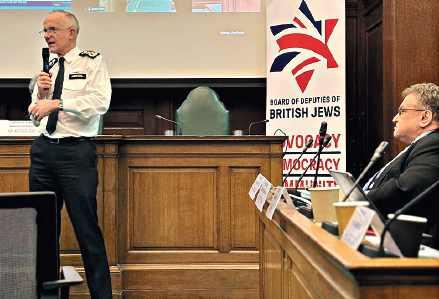
account the Human Rights Act, that’s what the law says, and of course the rights of all communities, the rights of protesters and freedom of speech etc etc”, adding “the powers to condition protests are quite limited – we’ve used conditions on the protests more than we ever have done before in terms
of times, constraints, routes...
“Always trying to balance the right to protest with the right of communities to serve serious disruptions.”
Rowley also addressed specifically the conditions that had been imposed on the PSC’s march last Saturday, which at one time was planned to pass a synagogue.

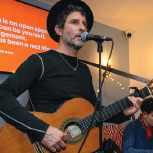
The commissioner said the Met on this occasion had “taken account of the punitive disruption on communities, particularly on the business communities in central London and on Jewish communities”.
He said his command team had introduced “sharper and stronger conditions” on the organisers of the 18 January demonstration and had “moved the dial because of the changing picture”.
The commissioner’s remarks were greeted with applause from deputies.
Responding, a spokesperson for Campaign Against Antisemitism told Jewish News: “CAA has extensive legal expertise and has successfully brought legal action against the police and the CPS numerous times, including recently on behalf of people protesting against Hamas who have been wrongfully arrested by Sir Mark’s o cers.
“We do not see the law as we would wish it, we see the law as it is, if only he would stop jousting with us and get on with enforcing it.”


Jeremy Corbyn and John McDonnell have been interviewed under caution by police following a pro-Palestinian rally in central London on Saturday, writes Lee Harpin.
The former Labour leader, 75, and former shadow chancellor, 73, voluntarily attended Charing Cross police station on Sunday as the Met investigated what it said was a coordinated effort by organisers to breach conditions imposed on the event.
Nine other people – including Corbyn’s brother Piers and Stop The War Coalition founder member Chris Nineham – have been charged with public order offences following arrests at the protest organised by the Palestine Solidarity Campaign (PSC).
In a statement, the force said the nine people charged were due to appear at Westminster Magistrates’ Court in the coming days.
Police added on Sunday: “A 75-year-old, 73-year-old and 61-year-old will be interviewed by officers this afternoon.”
Corbyn and McDonnell were photographed leaving the central London police station on Sunday afternoon.
Corbyn, the Independent MP for Islington North, challenged the Met’s claims, posting
The director of the Palestine Solidarity Campaign ha been charged for breaching the terms imposed on last weekend’s pro-Palestine rally in London. Ben Jamal, 61, of Kingston-uponThames, who was charged with public order

on X: “I was part of a delegation of speakers, who wished to peacefully carry and lay flowers in memory of children in Gaza who had been killed.
offences including inciting people to fail to comply with protest conditions, is due to appear at Westminster Magistrates’ Court on Tuesday 21 February.
Police also interviewed Jamila Zadran, 32,
“This was facilitated by the police. We did not force our way through. When we reached Trafalgar Square, we informed police that we would go no further, lay down flowers and disperse.
of East Ham, east London, who was charged with assaulting an emergency worker and will appear at the same court on 19 February, and Luke Jacobs, 22, of West Hampstead, northwest London, who was charged with obstructing
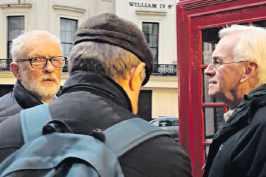
“At that point, the Chief Steward, Chris Nineham was arrested. We then turned back and dispersed. I urge the police to release all bodycam footage and retract its misleading account of events.”
McDonnell, MP for Hayes and Harlington, who currently sits as an independent in the Commons after losing the Labour whip, also posted a similar statement on the same social media platform.
Nineham joined the others in posting on X, saying: “Came out of police station, dishevelled, earlier today. Now at home, safe and well. Thanks to each and every one of you.”
a police officer and criminal damage and will appear at the same court on 17 February.
Nine people were earlier charged with public order offences, including Jeremy Corbyn’s brother, Piers Corbyn, 77.

After touring the Auschwitz death camp with his his wife Victoria, Keir Starmer says: ‘The truth I have seen here today will stay with me forever’

by Lee Harpin @lmharpin
Keir Starmer felt personally compelled to invite a group of Holocaust survivors to Downing Street yesterday after he was left feeling “wave after wave of revulsion” at the industrialised murder of Jews after visiting Auschwitz-Birkenau.
The prime minister told Jewish News his visit to Auschwitz last Friday was “one of the most harrowing experiences of my life” and left him determined to make sure “what happened in this unique and darkest of crimes must never be forgotten or diminished.”
Vowing not to allow the trip to the camp to become a one-off action, Starmer contacted the Holocaust Educational Trust organisation as he returned from Poland, saying he wished to honour the remaining survivors and some of their familes in this country by staging the reception in Downing Street.
Karen Pollock, chief executive of the Holocaust Educational Trust told Jewish News: “The prime minister’s warmth and compassion for these precious eyewitnesses was deeply moving and we welcome the strength of his commitment to our cause.”
With the country preparing to mark Holocaust Memorial Day on Monday, Starmer, along with his wife Victoria hosted the event at No.10 with those attending including Auschwitz survivors Renee Salt, with son Martin, and Arek Hersh, with daughter Michelle, Mala Tribich, who survived Bergen-Belson with her son Jeffrey, and Harry Olmer, who survived five camps, with his daughter Julia.
Starmer told Jewish News: “My visit to Auschwitz last week was one of the most harrowing experiences of my life. I felt wave after wave of revulsion at the sheer scale of this barbarous, planned, industrialised murder. One million Jews killed in Auschwitz. Six million in total. All for the same reason. Because they were Jewish. Amid this utter depravity, there was a particular image that continues to haunt me. It was a photograph of a German guard standing with Jewish prisoners and smiling.
“As I looked across other photographs, I saw he wasn’t the only one. Other guards were adopting similar poses. These were not German soldiers reluctantly following orders or trying hide away from the horrific nature of their crimes. They were standing there proudly, as if wanting to be seen. I’ll never forget how I felt at that moment. It illustrated to me, more power-
fully than ever before, how the Holocaust was not simply the evil deeds of a few bad individuals forcing others to do unspeakable things. It was a collective endeavour by thousands of ordinary people who were consumed by the hatred of difference. Each playing their part in the dehumanisation and destruction of an entire people.”
Others attending yesterday’s reception were Michelle Richman, daughter of the late Zigi Shipman, Bernice and Josh Kennet, daughter and grandson of the late Gena Turgel, the Belsen liberator Mervyn Kersh, and his daughter Lynne and Lord Alf Dubs.
“As we come together for Holocaust Memorial Day next week, there are many reasons why this commemoration matters – not just for our Jewish community but for the whole nation. “
During the Downing Street reception, the PM poignantly signed HET’s Book of Commitment with its pledge to educate every person from every background in the UK about the Holocaust and its contemporary relevance.
“It matters that together we counter those who would despicably contest or excuse the facts of history,” said the PM. It matters because what happened in this unique and darkest of crimes must never be forgotten or diminished.
“It matters because we must recognise that

is a
the poison of antisemitism has been despicably rising again in the aftermath of 7 October. And that we must never allow Jewish people to be persecuted on British streets, just for that same of reason of being Jewish. But it also matters because we need to tackle the root causes of this hatred. By teaching young people the lessons of the Holocaust – as well as the genocides that have followed – we can help them develop that crucial empathy for others, that appreciation of the common humanity of all people.”
On Tuesday, in a further sign of the government’s commitment to remembering the Holocaust, Chancellor Rachel Reeves staged a reception at Number 11 Downing Street to mark the forthcoming HMD. Speakers included Reeves herself along with Chief Rabbi Ephraim Mirvis and Holocaust survivor Susan Pollack.

Football legends from five Premier League clubs interviewed Holocaust survivors as part of a project initiated by Jewish News to mark the 80th anniverdary of the liberation of Auschwitz, writes Adam Decker. Arsenal, Brighton & Hove Albion, Tottenham Hotspur, West Ham and Chelsea took part in the initiative to bring the horrors of the Nazis and the need to tackle hate today to an audience of millions globally. Jewish News partnered with the Holocaust Memorial Day Trust, Football Association and Dangoor Education to do so.
Arsenal’s World Cup winner Per Merte-


sacker met Bergen Belsen survivor Alfred Garwood at the Emirates and Janine Webber, who was a hidden child in Poland during the war, spoke to Lioness and Chelsea legend Katie Chapman at Stamford Bridge last week.
At Wembley, John Hajdu, who was liberated from the Budapest ghetto, sat down with former Tottenham defender Ledley King and West Ham’s Carlton Cole heard the testimony of Dr Martin Stern, who was taken to a concentration camp aged five.
Brighton’s Glenn Murray heard from Joan Salter how she and her mother capture by just a day after being smuggled out of Paris in a laundry van when warned their names were on the list for the first deportation of women and girls.






Young people associated with each club took part in the interviews so that the message and experience of the survivors can be passed down.
Chief executive of the Holocaust Memorial Day Trust, Olivia Marks-Woldman said: “Football is a universal language of unity and friendship, perfectly reflecting the core message of Holocaust Memorial Day. These icons of the sport understand better than most that the essence of a team lies in its diversity – every member contributing their unique strength toward a shared goal.
“HMD is more than a moment of reflection; it is a call to action. Like in football, we are all called to play our part in championing
empathy and understanding. Together, we can create a world where everyone is embraced, respected, and valued, regardless of their beliefs or experiences.”
respected, and valued, of
Dal Singh Darroch, head of diversity and inclusion at the FA, said: “Marking Holocaust Memorial Day is as critical today as ever.
After a year of record levels of hate against British Jews, this annual day reminds us of where hate can lead and the need to combat antisemitism and all forms of prejudice.
“The FA will always play its part in that fight and so we appreciated the opportunity to mark HMD with the Jewish News and Holocaust Memorial Day Trust through a project set to reach millions.”
The project took place with help from the Holocaust Educational Trust, the National Holocaust Centre, Association of Jewish Refugees, March of the Living and Maccabi GB, and was produced in collaboration with leading social media agency 8original.
The clubs are set to share the content across Instagram, Tik Tok, YouTube, and X over the coming days in what is thought to be

the largest social media project ever initiated by a Jewish media outlet.
News editor of Jewish News Justin Cohen said: “Football’s position as the national game brings with it huge power to e ect discussion and opinion, particularly among impressionable young people.
“Uniting that power with another great influencer of our age, social media, will enable this campaign to reach millions globally and to amplify the precious message of survivors of where hate can ultimately lead, 80 years ago but also now. Thank you to all our partners and the Premier League clubs who’ve shown once again they fully understand that with the power to influence comes responsibility.”

• Taxefficientinvestingbefore& afterAliyah
• Tax efficient income after10-year tax free period
• Receive your entire pension pot tax free
• Specialist portfolio management for Olim
• No

02082021944
GoldersGreen@RaymondJames.com
GoldersGreen.RaymondJames.uk.com
With Investing, your capital is at risk RaymondJamesInvestmentServicesLtdisamemberoftheLondonStockExchangeandisauthorisedandregulatedbytheFinancial ConductAuthority. RegisteredinEnglandandWalesnumber 3669657.Registeredoffice:RopemakerPlace,25RopemakerSt,LondonEC2Y9LY.


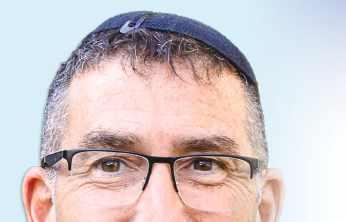



The Irish president has rejected calls from Israel’s outgoing ambassador to the country to cancel a planned speech to mark National Holocaust Memorial Day, writes Joy Faulk.
Dana Erlich accused Michael D Higgins of “anti-Israeli” sentiments and said he should stay away from the event in Dublin on Sunday in light of “concerns of the Jewish community”.
The Israeli government said in December it would close its embassy in Ireland as it accused the Irish government of “antisemitic rhetoric” and pursuing “extreme anti-Israel policies”.
The move came after Ireland formally recognised the state of Palestine and amid moves by the government to ban imports from what it called the Occupied Palestinian Territories.
In response, President Higgins said it was a “deep slander” and “gross defamation” to accuse Irish people of being antisemitic and said it was “part of a pattern to damage Ireland”.
In an interview in the Independent on Sunday newspaper, Erlich said Higgins’ presence at the memorial event would overshadow it.
“If there were many events it would have been different, but I think the president has many opportunities to speak about and echo his opinions — I think on that event it should

be something solemn, focusing on Holocaust remembrance, Holocaust education and preventing antisemitism rising again.”
In response, a statement on behalf of President Higgins said: “All of President Higgins’ statements will show, through this work in politics and as President, that he has again and again strongly condemned antisemitism, Islamophobia and all forms of racism. Evidence of this is clear on the public record, in print and on the public website of the President of Ireland.
“Included in the President’s statements is,
A white supremacist with a tattoo of Adolf Hitler’s signature on his arm has been jailed for life after stabbing an asylum seeker.
Callum Parslow, 32, stabbed Nahom Hagos in the chest and hand at the Pear Tree Inn at Smite near Worcester.
Parslow was convicted of attempted murder after a threeweek trial last year and was appearing for sentence. He had also pleaded guilty to an unconnected sexual offence and two charges of sending electronic communications with intent to cause distress. He was given a minimum term of 22 years and eight months.

The court heard Parslow tried to post a “manifesto” on X before his arrest claiming he did his “duty to England” by trying to “exterminate” his victim.
In the post, which to failed to send, Parslow identified “the Jews, the Marxists and the globalists” who he said were responsible for
demonising Christianity, white people and European culture.
Mr Justice Dove said the attack was motivated by Parslow’s adopting a “far right neo-Nazi mindset, which fuelled your warped, violent and racist views.”
Hagos, a 25-year-old Eritrean who has been granted leave to remain in the UK until November 2028, had previously been a resident at the hotel where the attack took place.
Parslow stabbed him with a “specialist” knife he had bought online for £770, which the judge said had an “especially hard and sharp blade”.
Bethan David, head of the Crown Prosecution Service’s counter-terrorism division, said: “Callum Parslow’s neo-Nazi views motivated him to viciously attack a man based solely on the colour of his skin and the place he was from, and he sought to spread fear amongst a community.
“This was an act of terrorism.”
An alleged Islamic State supporter accused of plotting a terrorist attack after allegedly being caught with a recipe for mustard gas will face trial in the autumn.
Jordan Richardson, 20, was charged at the Old Bailey last Friday with engaging in conduct in preparation of an act of terrorism between August 1 and December 19 last year.
The court heard searches of digital devices showed he had expressed a desire to kill or harm Jewish people and was alleged to have acquired
weapons, researched explosive substances, identified possible locations and considered steps needed to carry out an attack.
Richardson appeared by video link from Doncaster prison, with the judge setting a plea hearing at the Old Bailey on 2 May and a provisional trial at Leeds Crown Court from 7 October. Richardson was remanded in custody.
The defendant, of Howden, East Yorkshire, was arrested after he allegedly made Instagram posts expressing his support for Islamic State.
for example, the clear suggestion that any targeting of Jewish or Israeli people in Ireland is completely wrong and should be addressed immediately by the State and non-State actors.”
It continued: “As to the horrific circumstances of the present, the president has strongly expressed the hope that a hostage release and ceasefire agreement such as will bring the release of all hostages and an end to the horrific loss of life and destruction which has taken place can be agreed, and his hope that it can be the beginning of a meaningful discussion and sustained diplomatic initiative from the international community to bring a lasting peace and security to Israel, Palestine and the greater region – a peace for which so many have hoped for so long.
“The president received an invitation from Holocaust Education Ireland to address what is an important, solemn and public occasion commemorating a genocide which we must never forget and from which we must learn –the National Holocaust Memorial Day Commemoration on 26 January.
“This will be the seventh time that President Higgins has accepted an invitation and spoken at this event.”
Nine alleged pro-Palestine protesters have denied breaking into the UK site of an Israelbased defence firm with sledgehammers, causing £1million worth of damage.
Elbit Systems UK’s site near Patchway, Bristol, was allegedly attacked by members of Palestine Action in the early hours of 6 August last year.
The defendants appeared by video link from HMP Low Newton, Wormwood Scrubs and Bronzefield jails, and spoke only to confirm their identities.
They all pleaded not guilty to aggravated burglary with intent to do unlawful damage with sledgehammers, criminal damage and violent disorder.
They are Charlotte Head, 28; Jordan Devlin, 30; Leona Kamio, 29, all from Hackney, east London; Samuel Corner, 22; Fatema Rajwani, 20, of Mitcham, south London; Zoe Rogers, 21, of Enfield, north London; Madeline Norman, 30, of Edinburgh; Ian Sanders, 45, of Leamington Spa, Warwickshire, and William Plastow 34, of Manchester.
Corner, from Devon, alone denied a further charge of causing grievous bodily harm with intent to a police sergeant.
A total of 12 women and six men had been charged with offences arising from the attack on the factory.

One of Britain’s biggest and most reputable currency transfer companies has ceased allowing customers to send money to Israel to be exchanged for shekels, writes Jenni Frazer.
Although Caxton refused to respond to media questions on the issue, one customer told Jewish News that he was first told it was because the firm no longer wanted to trade in a war zone, and subsequently taken “a hardheaded business decision”.
A former Caxton client said he had been happily dealing with the company for nearly 10 years. He has property in Jerusalem and used its transfer facility to send sterling to Israel to be converted into shekels, so the funds could be drawn on locally for domestic needs.
He said the arrangement had worked seamlessly and that “it was always efficient, everything was done well with no problems”. Over the years, he said, he had transferred “significant sums” to Israel via Caxton.
He had last sent money to Israel some time before 7 October 2023, and more recently used the company for dollar and euro transactions.
But in December 2024 the client said he had approached Caxton to send money to Israel to go into his shekel account with an Israeli bank.

“I was told, sorry, sir, we don’t offer that service any more. I asked, what’s that about? I wasn’t speaking to my usual account manager, but the person I was dealing with, said something on the lines of ,‘We’ve withdrawn from contentious areas, difficult places, withdrawn from trading there — for now.’”
The Caxton staffer said the company also did not deal with “Nigeria, places like that”, an analogy that did not impress the client.
The customer told Jewish News that he had made a number of attempts to speak to someone more senior at Caxton, only to be told that no one was available to talk to him. He was unable to reach his own account manager until just before the new year — but when he did,
asked him, given that he had a large amount of sterling still held by Caxton, whether he would be prepared to transfer such funds to Israel as a one-off arrangement.
Caxton’s head of private account management asked for time to consult. On 13 January, in an email exchange seen by Jewish News, he told the client: “Caxton no longer see it as commercially viable to send payments to Isreal [sic], due to low volume and demand. We therefore wouldn’t be able to facilitate any payments for you to that destination.”
The customer responded: “It is a shame Caxton has taken a stance that does not smell sweetly in an era of boycotts.”
Jewish News tried unsuccessfully to obtain an explanation as to why Caxton had stopped trading with Israel. They confirmed they had taken the decision to cease transfers and that all clients had been informed but said they were unable to comment further.
Caxton, which advertises heavily in the Financial Times, boasts on its website: “Since 2002, we’ve earned the trust of hundreds of thousands with our global payment capabilities, transparent rates and exceptional five-star UK customer service.”
Save the Children UK has said it is “deeply sorry” after a member of its public affairs team posted a video online asking for advice on bagel shops that did not support “genocidal maniacs” and “Zionism”.

Yasmin Ghaffar posted on TikTok asking for the location of bagel sellers in New York, adding: “I don’t want to be giving any of my money to genocidal maniacs.”
She said she wanted stores that were “actively pro-Palestinian” and “known to not be in support of that hell-hole place and Zionism”. She wrote that she was “going to New York next week and really want to go to the bagel shops, obviously”. Ghaffar then asked for recommendations for “anti-Zionist bagel shops in New York.”
A spokesperson for Save the Children UK said: “The language used in this TikTok is unacceptable and does not in any way reflect the views of Save the Children UK.”
The organisation said it was “deeply sorry for the offence caused” and its ” social media guidelines prohibit staff from posting offensive content”. It confirmed complaints had been received on Sunday about the post which was then taken down.
Ghaffar has been put on leave while an internal investigation is carried out.








The Jewish Volunteering Network held its largest awards event last weekend, with 105 submissions and representation from 53 charities, writes Michelle Rosenberg.
Some 350 guests attended the ceremony, which saw an 18 percent rise in nominations and a 50 percent rise in participating charities over the previous year.
The awards also marked 18 years since the founding of JVN. In Hebrew, 18 symbolises the word chai (life) – a fitting tribute to JVN’s work in bringing volunteering to life for individuals and communities.
Speakers included JVN chairman Daniel Levy, who shared personal letters from King Charles III’s private secretary and the President of Israel, Isaac Herzog, alongside JLC chair Keith Black and JVN co-founder Susan Winton.
Awards were given in four categories: volunteer of the year, volunteer team of the year, young adult volunteer of the year and lifetime achievement.
Nicky Goldman, JVN’s chief executive, called the event “heartwarming and inspiring”, adding: “As we mark JVN’s 18th year, it’s amazing to reflect on how far we’ve come since Judy Citron z”l and Susan Winton first envisioned JVN around Judy’s kitchen table.
“The event brought together winners and charities from across the Jewish community and beyond, showcasing the power of volunteering to transform lives. With 47 percent of Jewish adults more likely to volunteer monthly, far above the national average of 33 percent, our community is leading the way in giving back.
“We encouraged everyone to inspire one friend or family member to try volunteering
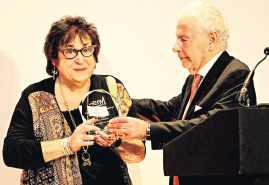
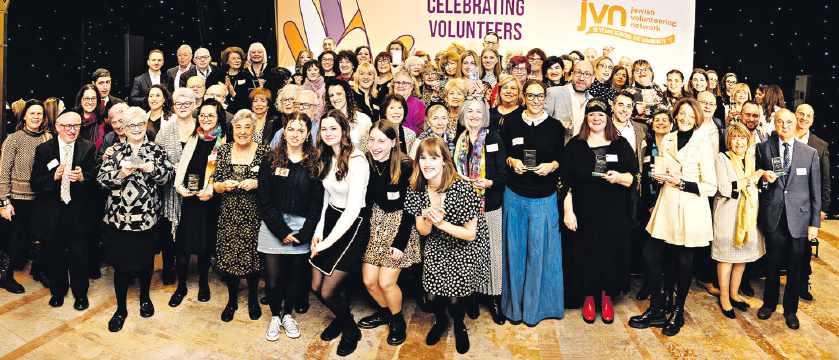
in 2025 and help grow this remarkable movement. Thank you to the charities and volunteers who make this all possible – your dedication to volunteering is the true heart of JVN.”
An independent judging panel, headed by Dame Mary Marsh, studied each nomination submission individually and chose the outstanding winners from each category.
The Citron, Sefton and Sivan Family Outstanding Lifetime Achievement Volunteer of the Year Award went to Shirley Lane of JLGB.
Neil Martin, JLGB chief executive, described Lane as “the very definition of a living legend.

A charity that supports 2,500 people a year is launching a matched fundraising campaign to support its work.
The Paperweight Trust, which provides free, practical support across a spectrum of legal, financial, welfare, post-bereavement and administrative matters, is asking donors to help it raise £450,000 for the year ahead.
Chief executive Bayla Perrin said: “The very real economic and legal impact of life’s challenges happen in the
Jewish community too. Even if we don’t talk about it. None more so at present than the rising cost of living, which is increasingly casting a heavy shadow across the community, as debt and financial challenges take their toll.”
She added: “We understand the overwhelming impact of financial strain, legal uncertainty and welfare complexities. Our mission is to provide unwavering support to individuals and families in need, helping them
navigate crises with dignity and confidence.”
Funds raise will support clients struggling with a range of issues, from helping with benefits assessments, correspondence with credit card or utilities companies, divorce hearings and mental health issues.
The Paperweight Trust opened a Leeds office in November, adding to its satellites in Gateshead, Manchester, Bournemouth, Brighton and Birmingham.
For over 60 years, she has been at the heart of JLGB, shaping generations with her kindness, creativity, and unwavering passion.
“Her fundraising for our Sderot Young Leaders programme brought hope and lifechanging experiences to hundreds of children able to come to our summer camps. Shirley isn’t just a volunteer or a leader – she is JLGB’s fairy godmother and we couldn’t be prouder to celebrate this incredible milestone with her.”
Wohl Legacy Outstanding Volunteer of the Year Award was Dalia Rudolph, volunteer at the Camp Simcha. The charity’s chief executive,
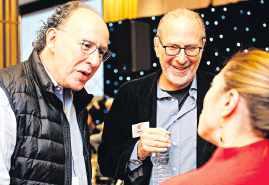
Daniel Gillis, said: “Camp Simcha’s Big Brother and Sister volunteers are at the heart of the critical services we provide to children with serious illnesses and their families. They are the backbone of our support system, and we are deeply grateful for their incredible dedication.”
Gillis praised Rudolph’s “extraordinary commitment to the family she supports”, saying: “The meaningful relationship she has built is a true lifeline for them, and her devotion, dedication, and kindness over many many years inspire immense pride in all of us at Camp Simcha.”
Outstanding Volunteer Team of the Year Award was the House of Life Team, at House of Life, Willesden Cemetery and Edwards Family Foundation Outstanding Young Adult Volunteer of the Year Award was Ruth Klajman from Gift.
Michelle Barnett, founding director of Gift, said: “Thank you JVN for the most inspirational awards ceremony.
“Thank you for recognising Ruth and other outstanding members of our community and giving them an opportunity to be acknowledged for the shining lights they are.”
The charity René Cassin has appointed barrister Jonathan Metzer to chair its trustee board.
The charity, named after the French-Jewish co-author of the 1948 Universal Declaration of Human Rights, works to use Jewish experience and values to advocate the rights of minorities.

Metzer said:“My commitment to human rights derives largely from my experience growing up in a strongly identifying Jewish family partly descended from refugees from the Holocaust.
“The Universal Declaration of Human Rights was a response to those atrocities, a
concrete expression of a global determination that they should never again be allowed to happen.
“To be leading the charity named after the Declaration’s coauthor is a great honour. It is also a tremendous responsibility at a time when populist nationalism is on the march. Today, when human rights are under such threat, the values that informed the Universal Declaration are as important as ever.”
Metzer replaces Danny Silverstone, who has led René Cassin since 2014 and whose “stewardship and hard work” were praised by the charity’s director Mia Hasenson-Gross.






Ramesh






























































OLIVIA MARKSWOLDMAN
CHIEF EXECUTIVE, HOLOCAUST
MEMORIAL DAY TRUST
What will the world look like in 80 years? Will AI have integrated seamlessly into our daily lives, performing tasks that once required human hands?
Will advancements in medicine have eradicated some of the diseases that haunt us today? Will we have discovered sustainable ways to care for our planet and ventured deeper into space?
But perhaps the most pressing question is this: Will humanity have learned from the horrors of the past to live together peacefully? Or will we still be struggling with the same prejudices that have so often led to hate, violence and su ering? To realise the promise of tomorrow, we must invest not only in technological breakthroughs but also in how we treat each other as human beings.
The world was horrified 80 years ago by

the sheer scale of Nazi brutality as the gates of Auschwitz-Birkenau were opened, revealing the systematic murder of six million Jews and millions of others the Nazis targeted.
The Holocaust, a crime of unimaginable devastation, left scars on humanity that we still grapple with today. As we observe Holocaust Memorial Day (HMD) and mark 80 years since the liberation of Auschwitz, it can be tempting to view this atrocity as a distant tragedy, one from which we should move on.
Yet this mindset is dangerously naive; it blinds us to the ongoing presence of the same forces of hate, intolerance and dehumanisation that fuelled the Nazis' genocidal campaign.
Antisemitism (anti-Jewish racism) has risen hugely across the world, including in the UK. Anti-Muslim hatred has risen too, and prejudice against people because of their disabilities, sexuality or ethnicity is, shamefully, still present in far too many places.
Genocides in Cambodia, Rwanda, Bosnia, Darfur, and against the Yazidis in Iraq are each a grim reminder of humanity's capacity for unspeakable cruelty. The lessons of the Holocaust are not merely historical foot-
notes. They are a call to action. It begins with the choices we make every day, in our own corner of the world. It demands a willingness to stand for what is right, calling out hate and bigotry, and educating ourselves and others about the dangers of intolerance.
This year on Holocaust Memorial Day we are inviting everyone to play a part ‘For a better future’. You may ask yourself: "What can I do? I’m just one person." The truth is, a better future begins with individual actions, even the seemingly insignificant ones. A better future is built on small acts of courage and kindness. It means speaking out against hate, whether from a friend, a colleague or a stranger. Equally, we must confront our own biases. It is easy to condemn the hate seen in others while ignoring the subtle prejudices we harbour. A better future requires introspection and a willingness to examine our own prejudices, challenge our assumptions, and strive to treat every individual with dignity and respect.
A better future compels us to reflect on these questions: "Am I perpetuating division, or am I promoting understanding? Am I standing up against hate when I see it, or am I remaining
silent, hoping someone else will speak up? What do I say when I hear a racist joke or a prejudicial remark?" In the sheer vastness of our world, it is easy to feel insignificant, questioning our ability to make an impact, or think we don’t have time to add our voice. Yet history has many examples of ordinary individuals who made a di erence . The foundation for a better future lies in recognising all forms of bigotry and intolerance are not distant but issues that can influence our own thoughts, and actions.
HMD is an annual reminder of the consequences of failing to stand up for justice and human dignity. It challenges us to ask ourselves what kind of world we want to live in and what we are willing to do to make it a reality. A better future is not an abstract ideal; it is a tangible goal that requires the active participation of each of us. Of course, there will be setbacks. There will be times when it feels like our e orts are in vain. But we must persevere. The fight for a better world is a marathon, not a sprint. It requires constant vigilance and unwavering commitment. Let us commit to being the change we wish to see. A better future begins with me, with you, with all of us.
PAUL GROSS
WRITER & LECTURER ON ISRAELI & GLOBAL POLITICS
Sunday was an extraordinarily emotional day in Israel, with the country glued to television screens watching the news from the moment word emerged that Emily Damari, Romy Gonen and Doron Steinbrecher were on their way in International Red Cross transport, to be received by the IDF.
According to polls, a clear majority of Israelis believe this ceasefire deal is the right thing to do – the best thing to do in the circumstances. A vocal minority insist it's a terrible deal, with nearly 2,000 Palestinian terrorists granted their freedom, including several hundred with blood on their hands. It seems to me the deal is both these things. Yes, it is terrible. And yes, it is the right and best move right now.
We have to face facts. Hamas made a brilliant strategic move on 7 October, choosing to take 251 hostages rather than simply adding their names to the list of the slaughtered on that terrible day. The IDF was hamstrung from day one of the crisis.
Because here’s another fact: we were sold a bill of goods by Benjamin Netanyahu and his government when they told us we could both eliminate Hamas completely, and get all our hostages back.
This was never true.
To do the former would require a longterm occupation of Gaza and a drawn-out conflict, probably over a number of years. Hundreds of soldiers would be killed – and in Israel, every soldier killed is a national tragedy.
Already the cumulative hundreds of thousands of days served by Israeli reservists has cost the country billions of shekels in lost work days.
Small businesses have closed; start-ups in the Start-Up Nation have gone to the wall. To say nothing of the e ect on families of mothers bringing up children without their fathers for months on end. (And keep in mind the coalition politicians most vociferously pushing this are, for the most part, also insisting the ultra-Orthodox be exempt from military service.)
So, we have to make a choice: eliminate Hamas after a long and costly war of attrition, which would almost certainly mean the deaths of most of the remaining hostages; or accept the complete elimination of Hamas
is not feasible but getting the living hostages back is.
The hardest thing for many Israelis about Sunday's TV coverage was seeing hundreds of Hamas fighters gathered in Gaza in full military uniform. (Funny how they wear uniforms after a ceasefire. When they’re fighting, they prefer to disguise themselves as civilians). They were celebrating a “victory”.
Most people would not look at the ruins of Gaza and call it that, but they will have a case if the war ends with Hamas still able to exercise power in Gaza.
To deny them this, Netanyahu needs to make the decision he has avoided making thus far, despite repeated entreaties from both Washington and his own military leadership: what will the “day after” look like in Gaza?
The only two feasible alternatives that would deny Hamas a role are a return to full Israeli control or bringing in the Palestinian Authority that already governs most of the West Bank.
The former would be a colossal financial investment for Israel and would require increased army service.
It would also alienate Israel’s allies, including in the Middle East, and would all but kill the chances of a game-changing peace
agreement with Saudi Arabia.
The remaining option is far from ideal. The Palestinian Authority is despotic and untrustworthy, but there is a real opportunity here.
The road to Saudi normalisation could be paved with the reform of the PA that is so desperately needed – addressing corruption and anti-Israel and antisemitic incitement in the media and the education system.
A di erent Israeli prime minister, leading a di erent coalition – one not beholden to the ideological fantasies of Messrs. Ben Gvir and Smotrich – would have long ago sought to bring the United States, the UAE, Egypt and Jordan into a framework to support the PA takeover of Gaza, replacing Hamas.
These partners could also push Palestinian reform, which would allow Israel to declare its renewed support for the two-state paradigm, and the obstacles to an agreement with Riyadh would be removed.
It is not too late for Netanyahu to change tack, though unlikely. But the one man who could force Bibi to abandon his hard-right allies and pursue a pragmatic path is now back in the White House.
And Donald Trump, who lives for personal acclaim, might just be tempted by the prospect of a Nobel Peace Prize.

‘You’ve blown up so many rockets, we’re going to have to start calling you Iron Dome’



Coleridge Way, Borehamwood, £695,000, Freehold Atlas Crescent, Edgware, £340,000, Leasehold
On the market for the first time since it was built 16 years ago, is one of only two 4 bedroom houses on this much sought after street. All 4 bedrooms are doubles, which is rare, and whilst the property is in need of modernisation, the potential is huge. There is also a driveway with parking for 2 cars. It is on the south side of Borehamwood, just a few moment’s walk to Elstree & Borehamwood station, the high street and amenities, places of worship and many schools including Yavneh College and Monksmead.
Engel Jacobs are delighted to bring to market, For Sale, this well-presented first-floor apartment. It comprises of two bedrooms, kitchen, reception, family bathroom and balcony. It also has the benefit of an allocated parking space. This is a great opportunity for Investors! EPC C

Soothouse Spring, St Albans. £1,400pcm
Engel Jacobs are delighted to offer this attractive top floor flat in this modern development. It comprises of 1 bedroom with fitted wardrobes, open plan kitchen and reception with Juliette balcony, lovely bathroom, study and residents parking available. It is perfectly located for easy access to St Albans city centre, with amenities galore and St Albans City station being just over a mile away. EPC B

Wickliffe Avenue, Finchley, £895,000, Freehold
Engel Jacobs are delighted to bring to market, For Sale, this townhouse arranged over three floors, situated in a popular cul-de-sac off Hendon Lane. It comprises of four bedrooms, two bathrooms, two receptions, study, garage and a south facing balcony. Additional benefits include a private rear garden and front driveway with parking for one to two cars. It is located 0.5 miles from the many shops, cafes, restaurants, bus routes and Finchley Central Station on the Northern Line.
EPC C

This month saw Tracy-Ann Oberman’s The Merchant of Venice 1936, a play which premiered nearly two years ago, revived with a glittering opening night. But while in 2023 the play garnered a sense of excitement, achievement and education, today the (still excellent) production provokes a more unsettled reaction from its audience.
The adaptation by Oberman and Brigid Larmour tells the story not from the medieval Venetian perspective but is set in 1930s' England, when Oberman’s grandmother was one of the many to take a stand at the Battle of Cable Street, fighting Oswald Mosley’s fascists.
Two years ago, the evening was a fine translation of classic literature into modern history. But history since has marched on apace. On 7 October 2023, some seven months after Oberman’s opening night, thousands of Hamas terrorists invaded Israel from Gaza, wreaking murder, rape and torture.
Antisemitism has long been described as a very light sleeper, never more so than in the immediate aftermath of the Hamas attack when antisemites around the world celebrated the butchery. In Australia, the hatred escalated so rapidly that by 9 October there were large crowds outside the Sydney Opera House calling for Jews to be gassed.
So while Oberman and Larmour may have intended their production to be a history lesson on the hatred of antisemitism, they could scarcely have imagined the speed at which their adaptation was almost to appear to seem dated, such is its relevance.
The months since October 2023 have only seen those hateful chants grow louder. Jews who visit the Trafalgar Theatre today are not just witnessing a play about 20th-century England; they also recognise what Oberman and her talented cast are playing out on stage is happening in real life too.
Halfway through the play, Shylock’s London synagogue is daubed with a “Jews Out” slogan, as posters of Mosley appear on stage. Swap that message for today’s calls to “Free Palestine”, and the set could just as easily be depicting 2025 as 1936.
Reflecting on the Australian calls to slaughter Jews, the other infamous chant to which Jews are now subject is “From The River To The Sea, Palestine Will Be Free” a phrase as ignorant as it is menacing, a ten-word slogan calling not for peaceful co-existence with Israel but an eradication of the Jewish state.
On closer inspection, the ten words see hate outweighing history, with one needing only to consider modern Jerusalem and the site of the Jewish Second Temple. Constructed in the first millennium BCE and destroyed by the Romans in 70CE, it is only the Western Wall of the Temple Mount that remains to this day.
That the site, profoundly sacred to Jews, was then conquered, colonised and built over is but one of the chapters of Jerusalem’s complex history. So if the call really is to “free” an unquestionably troubled region, is it not unreasonable to ask: freed from whom?
Shylock’s final humiliation is at the hands of the Duke where, having already lost his daughter, he is stripped of both faith and fortune by the Jew-hating court. With echoes of France’s 19th-century Dreyfus Trial, Oberman’s audiences will view this scene today in the context of the antisemitic actions of
a number of nation states and international organisations, today’s equivalent of the play’s biased courtroom.
The past year has seen the UN with various aid agencies repeatedly found to have had employees embedded in the infrastructure of terrorist organisations. The International Court of Justice has issued an arrest warrant for Netanyahu while silent on crimes elsewhere The South African and Irish governments have accused Israel of waging genocide.
Oberman ends her play with a plea for tolerance. Maybe there is hope. A prominent member of the UK Jewish community, while visibly upset after seeing the play, referenced the line from Julius Caesar: “There is a tide in the a airs of men, which, taken at the flood, leads on to fortune”. Perhaps, she observed, that tide may be about to turn.
The Merchant of Venice 1936 plays at the Trafalgar Theatre until 25 January before touring the country
Jonathan Baz is a theatre critic and broadcaster. Read more of his writing at www.jonathanbaz.com












ARIEH MILLER CEO, UNION OF JEWISH STUDENTS
Leaders in our community can have a transformational impact. Sometimes the community is willing, sometimes it’s reluctant and sometimes it’s dragged kicking and screaming. The journey is rarely straightforward.
Growth, by its very nature, needs discomfort – a willingness to step into the unknown, challenge assertions, and face complexities. This is why ‘productive discomfort’ is central to leadership. It is a model for leadership development designed to push boundaries respectfully and constructively.
It is a framework that encourages individuals to take on challenging situations that spark self-reflection, build resilience, so they learn the adaptability essential for meaningful leadership.
This idea is not new. Lev Vygotsky’s zone of proximal development looks at how learning occurs at the edge of current capa-
bilities. Carol Dweck’s growth mindset says challenges present opportunities for growth. Comfort zone theory says stepping into discomfort spurs innovation.
The journey towards productive discomfort began when I was at school, in a Jewish studies lesson. My teacher was discussing belief in God and said true belief couldn’t exist, and we couldn’t be certain of it, unless we questioned it. Those words have shaped my leadership approach ever since.
To be truly certain of something, be it faith, values, or beliefs, we first have to challenge them. It’s not a one-time process. It is constant and continuous. It applies to every aspect, from knowledge, to religion, to politics and beyond. Leaders who embrace this continuous questioning are not simply going through the motions. They are growing, evolving and leading with authenticity.
This is at the heart of what makes great leadership, and it is the foundation of productive discomfort.
At the Union of Jewish Students, we’ve embraced productive discomfort as a guide for nurturing Jewish leaders. It underpins our approach to many of our programmes,
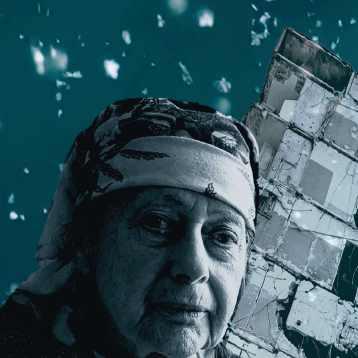
TO BE TRULY CERTAIN OF SOMETHING, WE HAVE TO CHALLENGE IT. IT'S NOT A ONE-TIME PROCESS
including the UJS Leadership Fellowship. Students are encouraged to confront di cult questions, explore diverse viewpoints and engage in dialogues that challenge deeplyheld beliefs. This is discomfort with purpose. Leaders who critically examine their beliefs and emerge with clarity hold those beliefs with greater confidence.
The willingness to let go of beliefs or ideas that no longer resonate demonstrates maturity, adaptability and courage.
Leaders need to navigate complexity with empathy and resolve. Productive discomfort equips leaders with the tools to meet these challenges head-on: emotional resilience,









mental flexibility and an openness to diverse perspectives. Leaders learning in this model are better prepared to guide others through di cult times, make thoughtful decisions and foster inclusivity. For Jewish students, this approach is particularly key. As future stewards of a community that thrives on debate, diversity and dialogue, we must equip them to handle the multifaceted challenges of leadership, both within the Jewish world and beyond.
The benefits of this approach extend far beyond university campuses. The skills of curiosity, adaptability and resilience are precisely what is asked of, and needed by, our community leaders now and into the future.
As we look to that future, I hope that others will embrace this model, not only as a tool for individual growth but as a path to collective resilience. The more we understand views and ideas beyond our own, the stronger our community will be for it. The leaders in our student community are not only the leaders of tomorrow but also the leaders of today.
By challenging them, we ensure Jewish campus life thrives and will go on to strengthen our future by inspiring a proud, resilient Jewish community for generations to come.








DR. ROBERT NEUFELD
MINERVA CENTRE FOR RULE OF LAW UNDER EXTREME CONDITION
The legal threats abroad against those who have served in the IDF show that we have entered a new stage in the legal warfare arena. What began as a specific and exceptional risk for senior officials has trickled down to any ordinary IDF sergeant, who is traveling abroad after a year and a half of combat service.
The time has come for the State of Israel to brace itself and face the enormous challenge it is now confronting. Israel must adopt a comprehensive strategy, establish a broad organizational and legal framework, and even pass new legislation to regulate the defense of soldiers persecuted abroad.
Today’s war is not confined to the battlefield. It is raging in other arenas, thousands of miles from Israel. It is a war of consciousness. Israel’s enemies – who have failed on the battlefield – seek to tar Israel

Ninternationally as a criminal and pariah state to be reviled. In the past year, we have seen worrying developments in the form of legal charges of “genocide” brought against Israel at the International Court of Justice (ICJ), the ICJ’s advisory opinion on the “legality of the occupation,” and, of course, the International Criminal Court (ICC) arrest warrants against the prime minister and former minister of defense.
Now, even rank and file IDF soldiers have become pawns on this chessboard. They often put themselves in jeopardy unwittingly, usually as a result of something they posted on social media during their military service. Israel’s enemies have homed in on this and have set up well-funded media mining systems and pursue ordinary soldiers.
In addition to amplifying claims that Israel is committing war crimes, they seek to undermine the willingness of Israelis to serve in the IDF.
For about a decade, an inter-ministerial team has been dealing with these threats against senior o cers and soldiers, together with the IDF Military Advocate General’s
O ce. To its credit, all of the threats so far have been thwarted. At present, not a single Israeli soldier is sitting in a foreign prison due to their IDF service. To date, most of the thwarted threats have been kept under the radar and out of the public eye, which is all to the good. But this will not be enough in the long term. What has been done quietly so far is unlikely to remain that way. The State of Israel needs a much broader combat strategy and organizational framework to deal with the growing threat.
First, significant preventive measures are required. Among other things, Israel must ensure that every soldier, regular or reserve, is educated about the risks of posting on social media. Many of them, who take pride in their contribution to the country, are unaware of the price they may pay for it, sometimes years later. At the same time, it is also necessary to proactively monitor and draw the attention of Israelis to posts that may put them at risk. Raising awareness among the public will cost money, but this is an appropriate and vital investment.
Second, a support system must be estab-
lished: an accessible hotline that the state makes available to soldiers and civilians, both before traveling and also while abroad. Among other things, travel warnings issued by the National Security Council should include specific references to countries where the legal risks are significant, such as South Africa, which has already announced that it will prosecute dual citizens who have served in the IDF. Finally, it is essential that the Knesset takes action. Legislation is required that will formalise existing protective mechanisms and pave the way for those that still need to be established.
Those who initiate and assist in the persecution of soldiers must face sanctions, and Israeli combat veterans should be granted indemnification guarantees and funding for legal aid. Provisions should also be made to provide support for their family members. Legal warfare has its own pace. It is certain to challenge us for years after the longawaited end of the war. It is Israel’s moral duty to envelop its fighters in legal protective gear to ensure that no harm will come to them in this arena, even years after.
ow the war in Lebanon has ended and a ceasefire and hostage exchange announced –both before President Trump even entered the Oval O ce – there is optimism for a future political horizon.
In January 2020, before leaving the White House, President Trump presented his Vision for Peace, the “deal of the century” which received support from Israeli Prime Minister Netanyahu and was rejected by President Abbas and the Palestinian Authority. The main reason that Netanyahu probably accepted it, other than his desire not to go against Trump, was his certainty that the Palestinians would reject it, as they did. Since on January 20, 2025 President Trump returning to the White House, it is worthwhile to review Trump’s Vision and to determine if perhaps there is something there worth embracing.
We should recognise that the Trump Vision is essentially the adoption of the two states solution. While according to the plan, the Palestinian state isn’t much of a state, there is no real control over borders, there
is no territorial integrity or contiguity, there is no real sovereignty, in short, it is understandable why the Palestinians rejected it. Nonetheless, the principle of two-states and Palestinian statehood is there and that is a step in the right direction.
There is no one who understands the conflict who can imagine speedily going from the horrors of the current war to the implementation of the two states solution.
There must be a political program and regional and bi-lateral Israeli-Palestinian negotiations that will lead to a defined agreement of two states – Israel and Palestine, living side-by-side in peace. To get there, there will have to be a full ceasefire, stabilisation, reconstruction, and new elections (in Palestine and in Israel).
If President Trump is serious about resolving the Israeli-Palestinian conflict, he will embrace the two states solution, because there is no other solution possible to this conflict. In any renewed peace process in order for it to be acceptable and a genuine basis for reaching peace, the end-game has to appear from the outset, even if it will potentially take a number of years to reach it. We cannot repeat the open-ended nature of the Oslo process which had no stated end-game and allowed for negotiations to continue
without end. The final two states agreement does not have to be spelled out in detail from the outset, but the broad strokes of what the final agreement should be needs to be explicit and the process needs to lead to its completion. In that context, the Trump Vision could be the starting place for renewed negotiations. The proposed map of the Trump Vision includes Palestinian control over about 70 percent of the West Bank and all of Gaza. No Israel settlement would be removed in this first phase, but no new settlements would be built. It is essential though, that President Trump make it clear to the Israeli government that annexation by Israel of any part of the West Bank would not be acceptable and would have dire impact on the US-Israel relations and on the chance of peace. During the following four years the issue of permanent borders would need to be resolved, including the possibility of territorial swaps that enable Israeli settlers to remain under Israeli sovereignty in exchange for territory from within the State of Israel – equal in size to that which might be annexed to Israel from the West Bank.
On the part of the Israelis and the Palestinians, all of this is predicated on the existence of two governments that are committed to a political process to resolve the conflict
and not to manage it. Both governments need to declare from the very beginning that their intention is to create a reality of peace between both peoples.
It is also clear that in order to even begin thinking in the direction of a new peace process, there must rise a new generation of leaders in Israel and Palestine. The process of selecting those leaders should be democratic elections in both Israel and Palestine. Both peoples need to come to terms with the reality of seven million Israeli Jews and seven million Palestinian Arabs living between the River and the Sea, even after the horrific events of this past fifteen months.
There is no military solution to this conflict and this war really must be the last Israeli-Palestinian war. There must be legitimate leaders on both sides that represent their people and have the mandate to enter into negotiations.
The negotiating process would be best set in a regional context which would include direct bilateral Israeli-Palestinian negotiations and there would also be the overriding framework of negotiations in the regional setting which would include the process of developing more normalisation and diplomatic relations between Israel and the Arab countries led by Saudi Arabia.

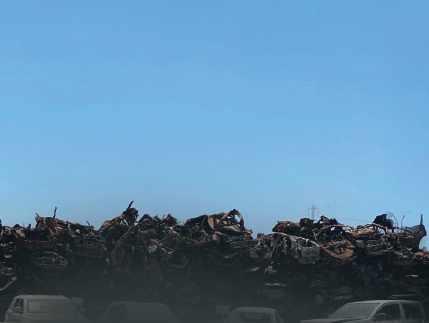


As we remember those who lost their lives in the Holocaust, we must never forget those who survived.
Jewish Care’s Holocaust Survivors’ Centre supports over 250 survivors and refugees through a varied programme of social and cultural events, as well as Shalvata, our therapeutic support service.
Members can find friendship and vital support and understanding among those who have shared similar experiences.
If you are a Holocaust survivor or refugee and need our help, or if you know someone who does, please call us today.
We will never forget.
To find out more about the Holocaust Survivors’ Centre, visit jewishcare.org or call 020 8922 2222













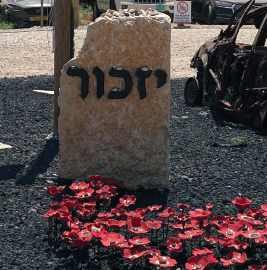

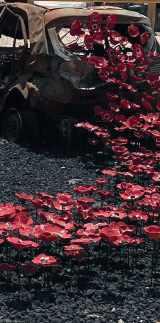


























Seven-year-old Amelia Leigh was one of 27 seriously ill youngsters who enjoyed Camp Simcha’s annual children’s retreat in Northampton. The group experienced four days of unadulterated fun and peer support, providing the entire family with a rare opportunity for respite. Activities included themed arts and crafts, bagprinting, archery and climbing, a drumming workshop, build-a-bear, a glow party, talent competition and concert. Ranging in age from seven to 18, the pupils each had a dedicated volunteer, along with Camp Simcha staff, a doctor, nurse, and carers on site, ensuring parents could enjoy a true break knowing their children were in safe hands.
Wes Streeting, MP for Ilford North and secretary of state for health and social care, visited King Solomon High School last week. He met school leaders, governors and representatives from the United Synagogue and the local Jewish community, to discuss the importance of Jewish education in Redbridge. Students in years nine, 10 and 13 listened to a keynote speech about his personal journey into politics, his role as an MP and as a member of the government, plus involvement in local issues. Streeting then met with a group of student leaders, including year 13 head students, suggesting there might be some future politicians among the school line-up.
Headteacher Juliette Lipshaw and pupils at Europe’s largest Jewish primary school celebrate its ‘outstanding’ rating by Ofsted officials. Following an inspection in November, the Kenton-based school received the highest grading across all areas including quality of education, behaviour and attitudes, personal development, leadership and management and early years provision (nursery and reception). Remarkably, the school was also told there were no areas for development.


Students at Keser Primary School in Gateshead enjoyed two days of interactive workshops with Emily Ben-Ze’ev from Emily’s Adventures in Wonderland. Ben-Ze’ev, who taught at schools including Mathilda Marks-Kennedy and Menorah Primary School, delivered 17 noisy and joyful workshops on 50-plus unusual Instruments from around the world, plus matching hats.
Two men who had their barmitzvahs together 70 years ago reunited last Shabbat for a second barmitzvah, marking their 83rd birthdays. Paul Freedman and Howard Brecker lived in the same road in Edgware. On 8 January 1955, the boys and their families celebrated at Edgware United Synagogue. Fast-forward seven decades and the old friends went through the rite of passage a second time with their families.





•
•
•
•
•






















Midas Man in NYC Shulem Lemmer in London
How can we tell children about the Holocaust? Two new illustrated books do it beautifully, writes Jenni Frazer
In recent years there has been a discussion, both inside and outside the Jewish community, about how to talk to children about the Holocaust. The subject is repeatedly aired at this time of year, with Holocaust Memorial Day on the agenda. Children, naturally curious, will ask questions that parents and teachers may struggle to answer. How young is too young to describe the pain and cruelty that took place?
Most educators and writers agree that age 11 or 12 is about right, whether in school or at home. It makes a di erence, probably, if the information is about the experiences of young people, often forced to grow up and make impossible decisions about their lives in the most desperate of circumstances.
Two new books published this month seek di erent approaches to talking about the Holocaust, though they both use a deceptively simple visual medium which is likely to appeal to young people.
The writer and presenter Thomas Harding has an elegant record in presenting history through the lens of a building. His previous book was The House by the Lake, a simple but not simplistic story of 20th century Germany, tracing the lives of five families who lived in the house of the title. One of the families was his

own and he first visited the house, by then in a dilapidated state, with his grandmother in 1993.
Twenty years after that visit, Harding was inspired to write about the modest villa, with illustrations by Britta Teckentrup. The book was shortlisted for the Costa Biography Award in 2015, long listed for the Orwell Prize in 2016, and became a BBC Radio 4 Book of the Week.
Now, ten years later, Harding has returned to his award-winning format. Teaming up once again with illustrator Britta Teckentrup, Walker Books has just published Harding’s The House on the Canal: The Story of the House That Hid Anne Frank I suppose it should not have come as a surprise that the house in question, on the Prinsengracht canal in central Amsterdam, is 400 years old. That being the case, it takes Harding quite some time to take the reader from 1612 to 1941, but this gentle introduction to the house’s various incarnations works beautifully.
Harding, writing in co-operation with the Anne Frank Foundation, meticulously takes the reader through the history of the house, telling us of “the woman with 12 children”, Bae e Bisschop, who moved in to the house in 1653, and, in contrast, Isaac van Vleuten, a wealthy merchant, who became the owner in the 1740s; he and his wife


Cornelia had no children. It’s fascinating to learn of the building of the house — because right from the start the builder, Dirc van Delft, added a typical-for-the-neighbourhood ‘rear house’ — in other words, an annexe.
We first meet Anne, visiting her father Otto in 1941: “Some days the tall man [who had rented the house for his business] was visited by a young girl with a sweet smile. She had a sparkle in her eye and a pen and notebook in her pocket. She was his daughter.”
Harding does not linger over the circumstances of the Frank family hiding in the annexe. He says: “The city was no longer safe for the girl with the sweet smile… the top floors of the annexe were now a hiding place. They had to be silent, otherwise the police and soldiers would find them. So still, not a sound. Each minute was a day. Each day was a year.”
experiences,
wartime experiences, which began in Hungary when he was four. Parallel Lines, A Journey from Childhood to Belsen, his first book, took the reader on that devastating journey.
“During lockdown,” he says, “I had the idea that I wanted to write for children, from the point of view of a child.” Thus was born his second book, The Boy Who Didn’t Want to Die, published in 2023. The reaction, said his publisher, was extraordinary and garnered Lantos various nominations and awards.





And then he writes: “One hot summer’s day, policemen and a soldier came to the house. The men stomped up the secret stairs and found the girl and her family and their friends. They took them away from the house.”
Peter Lantos was, like Anne Frank, a child during the Holocaust — but he survived. The Boy Who Didn’t Want To Die is his third memoir of
book, was approached to work with Lantos for
Boy Who Didn’t Want to Die
the narrative to children who
Victoria Stebleva, who had contributed an illustration to that book, was approached to work with Lantos for a graphic version of The Boy Who Didn’t Want to Die. The idea, said the publisher, was to open up the narrative to children who were not natural readers.
Steblova has illustrated Lantos’ journey out of Hungary, using black and white wash for most of the imagery — which shades into blue when the times becomes happier for the family. Sadly there are not many blue-framed pictures. Lantos tells us about his father’s death and one frame says: “Auschwitz. That name again. I started to count the dead in the family. I stopped at 21. Suddenly I started to cry and only stopped when my mother hugged me.”
Lantos has the tone of naivety just
right, as the four-year-old Peter asks artless questions and the adults wrestle with appropriate replies. In one frame, we see Peter and his mother near a building with a smoking chimney. What’s that building, the child asks? I’m not sure, replies his mother, but it’s probably a crematorium. What’s a crematorium, says the child. And his mother responds: “Do you have to know everything?” In the next frame the little boy admits: “It was the first time I had seen so many dead people.” Whether or not this is age-appropriate material for small children will depend on a parent or teacher’s choice. But Lantos shows how even the smallest child can be both witness to horror and at the same time oblivious to it. And at least we know that Lantos, awarded the BEM for his services to Holocaust education, got his wish — and survived. • The House on the Canal by Thomas Harding and Britta Teckentrup is published by Walker Books at £14.99; The Boy Who Didn’t Want to Die by Peter Lantos and Victoria Stebleva is published by Scholastic at £10.99

The city that’s so good they named it twice has always been good to me. Living in New York in the early 2000s served up such memorable moments as post-show drinks at a table for six with Mel Brooks and Anne Bancroft, dinner at Sardi’s with Jackie Mason and getting stuck in an elevator with George Clooney (and others) at the then newly-opened Soho House.
When the smoking ban was enforced in bars and restaurants by Mayor Bloomberg in 2002, I shared my Marlboro Lights with the late, great actor Phillip Seymour Hoffman on the terrace at Tavern on the Green. A few nights later an invitation to a cabaret performed by Broadway understudies had me seated between Alan Rickman and High Society star Celeste Holm. Did I have to pinch myself? Yes, every time, but not as hard as I did last week as I walked towards the Lincoln Center on the Upper West Side of Manhattan for the NY Jewish Film Festival gala screening ofMidas Man – the film I wrote about Beatles manager Brian Epstein.
In 1964 Brian Epstein took The Beatles to New York. In 2025 Brigit Grant has taken him back again
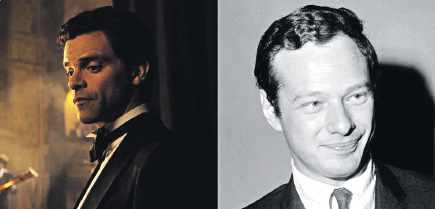
When Midas Man premiered in Liverpool in October I was nervous. With a roster of guests that included Freda Kelly, of The Beatles fan club (also Brian Epstein’s secretary), surviving members of The Quarry Men (John Lennon, Paul McCartney and George Harrison’s first band) and The Royle Family’s Ricky Tomlinson, it felt like judgment day. I have cried at the end of every screening because the story of Epstein’s prodigious life is so tragic, but the tears gave me an excuse to duck down in my seat as the final credits rolled.
The hearty applause and even a few cheers were my cue to look up. Liverpool’s royalty had given

their verdict and the compliments I received were enough to convince me that when the entire audience arrived at the after-party it wasn’t just for the drinks.
There is a moment in Midas Man when Brian Epstein (portrayed exquisitely by Jacob Fortune-Lloyd) leaves The Beatles playing on stage at the Royal Variety Performance at The Palladium and exits through a stage door only to reappear in New York. It’s a thrilling moment and one I felt I was replicating when I walked into the gala reception at the Lincoln Center and saw programmes with Midas Man emblazoned on the cover. For the record I took five and my only wish is that I could give one to my late mother Carole to whom the film is dedicated.
But back to the gala where, unusually for a Jewish event, there were no familiar faces, though the attendees, most of whom were wrapped up because of the minusfive temperature outdoors, were welcoming.
Invited to pose for photos with the film’s director Joe Stephenson


and one of the producers, Jeremy Chatterton (I tried to remember the most flattering stance), I noted the bar was heaving, but like all Jewish dos it was busier by the food- laden buffet table and the simcha-style spread would definitely have pleased the film’s Jewish hero, not to mention his mother Queenie.
The NY Jewish Film Festival is among the oldest and most influential Jewish film festivals in the world and its success is because of its director Aviva Weintraub who has watched Midas Man almost as many times as me. My introduction to Aviva came through Los Angeles-based film distributor Neil Friedman of Menemsha Films, who is dedicated to finding Jewish themed productions of global appeal which lead to him launching the streaming platform Chaiflicks.com so that no one misses them.
If a Jewish film exists Neil will find it and thankfully he loves Midas Man, but as a result of spending four days in his company I now have an epic list of Jewish content to catch up on, including Ravit Markus’ Nina is an Athlete, a documentary about an Israeli female Paralympian badminton player.
Ravit’s documentary was shown at the NY Film Festival and there were so many excellent films, it was unbelievable and humbling that Midas Man was chosen to open the week-long event. But it didn’t end there. After the film Aviva Weintraub invited Joe Stephenson and me to join her on stage at the Walter Reade Theater (American
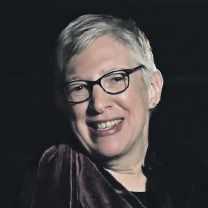
spelling) for a Q&A in front of a 300-plus audience. A smiling audience of 300-plus, I should add, many of whom clambered to speak to us after Aviva ended the chat. If everyone gets to be famous for 15 minutes, I felt every one of those minutes last Wednesday night, and again on Thursday when there was a matinee followed by an evening screening of the film.
With my daytimes free of the much-enjoyed attention, I wandered anonymously around NYC, stopping only for matzah ball soup at the historic deli Barney Greengrass and then walked across Central Park to East 70th Street to post a note through the letter box of my hero. The lights were on at Woody Allen’s house but I didn’t knock, though clocked the mezuzah on the front door.
While researching Brian Epstein I discovered how much he loved New York. He believed it was good to him and to The Beatles. That makes six of us.
• Midas Man is available to watch on Amazon Prime


Charedi cantor Shulem Lemmer sang for Israel at an emotive concert in north London this week. Louisa Walters was there

Just one day after we sat glued to our TV screens watching three young women come home from captivity in Gaza, more than 1,000 of us gathered at St John’s Wood shul for a deeply moving concert reflecting on the year and a bit since 7 October. The timing, albeit by default rather than by design, could not have been more perfect.
An Evening Of Music And Reflections: Israel Since October 7 was initiated by philanthropist Hilton Nathanson as the latest project of Bishnat, a charity he established in 2022 in memory of his father Brian. Bishnat is the first word of parshat Yitro, which they both read for their barmitzvah, and was their nickname for each other.
During an opening address in which he talked of the emotional toll the past year has taken on parents of IDF soldiers, Hilton reflected on the resilience of Israel during its longest war, emphasising the military victories and the global support. “I learned from my father that being Jewish is actually to never be alone,” he said. He called for unity and pride in Jewish identity, urging the community to speak up against antisemitism and promote democratic values.
Cantor Shulem Lemmer, the first Charedi singer to sign a major record contract, who has gained widespread fame both within and without the Orthodox community, was joined on stage by Avromi Freilich and Rabbi Alby Chait and the warm camaraderie and lively banter between them added a light-hearted charm to the evening. They were supported by nine musicians and musical director Rafi Graydi who played the keyboard and conducted.
Shulem said that performing in London 15 months after the last concert, which was held a few weeks after 7 October, “felt like coming home” and that the concert was “a reflection of all the amazing things we’ve accomplished”.
A series of captivating films illustrating the journey of the past year provided a poignant backdrop to the music. Images of the IDF, the
campaigning for the hostages, the attacks, the marches and moments of hope played out on screen. A reminder of all that has happened, all that we have endured, and how the world has changed for Jews since 7 October.
Opening with a series of songs sung in Hebrew, including Avinu Malkenu and Atah Zocher, Shulem, who lost his father just two months ago, then entranced the audience with his version of Simon & Garfunkel’s The Sound of Silence. The mood was then lifted with a medley of spirited Jewish songs sung by the trio, bringing an enthusiastic audience to its feet to dance.
After an interval we heard from Stephen Brisley, who shared his harrowing story of loss. His sister and two nieces were killed in the attack on Kibbutz Be’eri, and his brotherin-law Eli Sharabi remains in captivity.
This was followed by a hauntingly beautiful version of Acheinu by Alby who asked us to hold up our phone torches as he sang.
Shulem moved us with Andra Day’s Rise Up and cheered us with Elton John’s I’m Still Standing, telling us that “It’s because they knock us down that we rise up... stronger, and we are all still standing.” A karaoke version of From Now On from The Greatest Showman, was bravely taken on by Alby, who confessed to not knowing it, and he pointed out that the refrain of “we will come back home” resonates strongly with the hostages’ return.
We hoped it was coming... and indeed it did – Shulem’s stunning version of Eden Golan’s Eurovision hit October Rain. An emotional climax before a joyous medley of Israeli classics, that once again had everyone on their feet, in what was truly one of the most uplifting moments since 7 October.
As Shulem said, we are still standing. Not only that, but we are dancing.
Proceeds from the concert will be shared between One Family Together, an Israeli charity supporting victims of terror, and Beit Halochem, a UK charity supporting Israeli veterans. To donate visit bishnat.org





In our thought-provoking series, rabbis, rebbetzins and educators relate the week’s parsha to the way we live today
BY RABBI ALEX CHAPPER BOREHAMWOOD & ELSTREE SYNAGOGUE
It has been reported that emigration to Israel from the UK last year doubled as antisemitism soared, with a 204 percent rise in incidents recorded by the CST.
Such figures make concerning reading, especially as we mark 80 years since the liberation of Auschwitz-Birkenau, where more than a million people were murdered during the worst genocide in history.
This should give even more impetus to this year’s Holocaust Memorial Day; not only to remember this stain on humanity but also to educate about the dangers




of extremism and discrimination.
Its theme, ‘For a better future’, is commendable, as it encourages people to speak up against Holocaust denial and distortion, to challenge prejudice and, at the very least, to learn the lessons of the past so as not to repeat them in the future.
This idea of collective remembrance finds its origins in the Torah and specifically with the Exodus, of which there is an obligation to remember on a daily basis, and this week’s parsha, Va’era
The 400 years of enslavement to which the Jewish people were subjected in Egypt must be one of the earliest recorded examples of systemised mass persecution. At the time, there was also a silent majority, and no-one spoke up for the Israelites even when they were
Never Tell Anyone You’re Jewish My Family, the Holocaust and the Aftermath
Maria Chamberlain
on the verge of complete extinction. Instead, God miraculously intervenes and sends ten deadly plagues to convince the Egyptians to free the people.
After the seventh one, hail, we see something fascinating as Pharoah accepts his guilt and begs Moses and Aaron to plead with God to put an end to his display of strength.
Moses accedes but cautions that he cannot guarantee success because “I know that you and your courtiers do not yet fear God”. This seems to be a strange statement which almost states the obvious, so why does he make it at this point?
The Malbim explains that people are afraid only when they have something to lose but if you have nothing, then you have no fear that it will be taken away from you. The
The book ... provides rare insights into Jewish life in Poland after the Holocaust and the beginnings of a new life in Britain.
Professor Joachim Schloer, Southampton University 2022 264pp 72 b/w illus
1 80371 014 3 PB £16.95
Antisemitism in the Arab-Israeli Conflict
Time to Confront the Elephant in the Room
David H Stone
Foreword by Colonel Richard Kemp
[This] masterful account exposes how the root cause of the Arab-Israeli conflict lies in a continuing and virulent antisemitism cloaked in anti-Zionism.
Lord Turnberg
2024 220pp 14 b/w illus
978 1 80371 064 8 HB £35.00 / 978 1 80371 054 9 PB £16.95
The Survivors The Story of the Belsen Remnant
Told by Leslie H Hardman
Written by Cecily Goodman
Leslie H Hardman, a Jewish chaplain, entered Belsen camp two days after its liberation by the British Army. This book tells the story of what he found there, and what he did.
2009 136pp 4pp b/w plate section
978 0 85303 821 4 PB £13.95
I Light a Candle
Gena Turgel
Out of the ashes of the Nazi concentration camps came an extraordinary love story which caught the public's imagination at the end of World War II. This autobiography tells how the author survived the camps and met her husband, a sergeant working for British intelligence.
1995 160pp
978 085303 315 8 PB £13.95

next verse attests to the fact that all Egypt’s crops had been virtually destroyed and therefore Moses was concerned that the Egyptians would be unafraid of any consequences should they fail to abide by their agreement.
However, they could still look forward to the wheat harvest, which ripens later, and this should motivate them to comply with God’s demands – showing that even in the



worst of times we have to maintain hope, to believe that the future will not just be a repeat of the past, but that it can be better.
Just like the Egyptians, we need to remember that we will reap what we sow and look forward to a time when there is tolerance and respect for every human being.
This will be based on the knowledge that we are all created in the image of God.














Jewish News is delighted to be entering a digital-first era with the launch of a new website and new regular glossy magazine. We are therefore seeking an enthusiastic, emerging sales force to help navigate this new era and to sell these exciting new products alongside opportunities with our portfolio of events and community-leading social media presence.
• Achieving personal and team sales targets. Working to the teams agreed yield and series framework.
• Championing digital first solutions with a particular focus on substantially growing New Business.
• Building and developing strong client relationships and attending meetings and events.
• Identifying revenue opportunities from new and existing accounts and selling solution based integrated campaigns.
• Successfully communicating and introducing digital campaigns to existing print clients.
• Effectively selling across the website, digital publications, social, newsletters, magazines and more.
• Working closely with the Jewish News Publishing and Editorial team to ensure a smooth and commercially successful relationship.
• Working with the Social Team to sell and implement new parthership content.
• Liaise with the Head of Finance to ensure all revenue is accurately reported and invoiced.
• SALARY: Approx 36k plus generous commission package but flexible depending on experience

RABBI CHARLEY BAGINSKY CO-LEAD OF PROGRESSIVE JUDAISM
Glued to the television to watch the release of three hostages into the arms of their mothers, I sat holding my three teenage children thinking how lucky I am.
Those moments of reunion, the tears, the relief, the uncontainable joy – it felt like witnessing a modern-day redemption, the divine in human action. Yet, as I sat filled with gratitude, the weight of uncertainty about what comes next also pressed heavily on my mind.
Jewish tradition constantly pushes us away from rigid absolutes and toward the messy, holy work of grappling with nuance. It does not fear complexity; it embraces it. Our Torah begins with God creating order out of chaos, separating light from darkness, land from sea. But even as God declares the world “good”, the text leaves room for complexity. Darkness is not banished; chaos is not eradicated.
The release of hostages is a moment of unspeakable joy. To see mothers embrace their children, families reunited – it is a reminder of the infinite value of every human life. The rabbis teach that whoever saves one life, it is as though they have saved an entire world.
And yet, as Jews, we know to temper our joy with responsibility. Many hostages remain captive. We cannot celebrate fully while families are still waiting, other parents’ arms remain empty. The work of redemption is unfinished.
In Gaza, aid is beginning to reach a population devastated by su ering. But even as we rejoice in this, we are confronted with the evil of Hamas, whose violence, terror and destruction have inflicted unbearable pain not only on Israelis but on the people they claim to lead.
Who will guide Gaza’s people toward a future of dignity, hope and freedom? Who will emerge to lead the Palestinians toward peace, rather than more su ering? And how do we, as Jews, as humans, balance the need for justice with the relentless pursuit of peace? After all, our Judaism demands that we care for the












stimulating series where our progressive rabbis consider how Biblical figures might act when faced with 21st-century issues
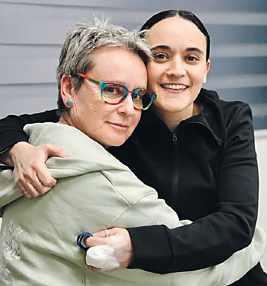
stranger, the widow, and the orphan, not only among our own people but among others.
I think of our foundational Jewish stories.
The Exodus, where freedom comes only after unimaginable su ering. The binding of Isaac,
joy and terror on the same mountain. Zechariah’s words ring out: “Not by might, nor by power, but by my spirit, says the Eternal God.”
Peace comes not from domination or violence but from recognising the divine image in every being, even those we struggle to see as equals. Our sages teach true strength lies not in defeating others but in mastering ourselves.
This ceasefire is a moment of hope, but also terrifying in its fragility. How do we ensure it becomes a step toward real peace, rather than just a pause in violence? The Talmud teaches: “It is not your responsibility to complete the work, but neither are you free to desist from it.”
This day reminds us of the best and worst of humanity: the power of redemption, the evil of terror, the fragility of hope. May we be worthy, and hold to the belief even in darkest times, that light is waiting to emerge.
I pray for parents still waiting to hold their children, for the courage to see the humanity in the other, even when it feels impossible. And I pray for the wisdom to navigate this moment with the nuance our tradition demands.

Fast & Flexible Lending International was established in October 2024, backed by the Mezz Lender and Sydney & London Properties Group. With a focus on bespoke real estate finance, it o ers bridging loans, development finance and mezzanine loans across the UK. The addition of the Israeli Property Loan reinforces the company’s commitment to addressing evolving client needs in a dynamic market.
Why is now a good time to buy property in Israel?
The community in the diaspora has always felt a connection to Israel and I believe now that is truer than ever. The combination of increased global antisemitism, heightened security concerns and increased interest in making Aliyah following the terrible events of 7 October 2023, has intensified interest in Israeli real estate.
Experts predict 2025 could see an historic wave of up to one million new immigrants to Israel, with reasons varying from safety to being closer to family. As many young adults are choosing to make their homes in Israel, their parents are seeking to buy property near to children and grandchildren. The supply-and-demand imbalance, especially in popular locations, means buyers need to move quickly to secure their desired property.
What is the first step for someone considering a property purchase in Israel?
Prospective buyers need to understand the nuances of the Israeli real estate market and determine their primary goals. Are they purchasing for investment, a second home, for family, or as preparation for making Aliyah? These factors will shape the type of property and financing options that suit their needs.
Securing appropriate financing is critical. Fast & Flexible Lending International’s Israeli Property Loan o ers a streamlined solution for overseas buyers. Loans are secured on Israeli properties and executed under UK jurisdiction, ensuring transparency and reliability. This allows buyers to proceed quickly, without navigating the complexities of Israeli banks.
Consulting local property experts, legal professionals, and tax advisers familiar with Israeli regulations is essential. This ensures buyers are fully informed about the legal, financial and logistical aspects of property acquisition. Fast & Flexible Lending International can refer clients to appropriate professionals.
What challenges do UK investors face when buying property in Israel?
Obtaining a loan through Israeli banks can be a lengthy and complicated process, particularly for non-residents, and they
may hesitate to approve loans for properties with unique or complex titles. The regulatory and legal framework in Israel di ers markedly from that of the UK. Buyers must navigate intricate issues such as land registration, zoning laws and potential disputes over property rights, which can be overwhelming without expert guidance.
Fluctuations in the exchange rate can impact the overall cost of the purchase. This introduces an element of financial uncertainty that buyers need to carefully manage.
Cultural and logistical barriers can complicate the process. Language di erences and unfamiliar local customs mean that it is essential for buyers to engage with professionals who have a deep understanding of the Israeli property market.
By o ering loans under UK jurisdiction, Fast & Flexible Lending International helps mitigate many of these challenges, particularly around financing, eliminating reliance on traditional Israeli mortgage approvals.
What impact has October 7 had on the property market in Israel?
Many Jews now view Israel as not only a spiritual and cultural homeland but as a practical space for safety and security. An influx of immigrants has heightened demand for residential properties, espe-


cially in cities with robust infrastructure. The overall market outlook remains positive, driven by a growing population and a resilient economy. Investing now allows buyers to secure property in a market poised for long-term growth and stability.
What is the maximum amount you can lend?
Fast & Flexible Lending International o ers loans of up to £2,000,000 with a maximum LTV ratio of 50 percent of the property’s valuation. This loan structure is specifically tailored for non-residents purchasing property in Israel.
Are there any extra costs to be aware of?
There are extra costs when buying in Israel. These include purchase tax, legal fees and agent commissions. Ongoing costs such as property management, repairs and municipal taxes should be considered, especially for second homes or investments. Planning ahead with expert advice and working with partners who know the system can help avoid surprises.

ARTICLES WANTED
Top prices paid
Antique – Reproduction – Retro Furniture (any condition)
Epstein, Archie Shine, Hille, G Plan, etc.
Dining Suites, Lounges Suites, Bookcases, Desks, Cabinets, Mirrors, Lights, etc.
House clearances
Single items to complete homes
MARYLEBONE ANTIQUES - 8 CHURCH STREET NW8 8ED 07866 614 744 (ANYTIME) 0207 723 7415 (SHOP) closed Sunday & Monday
STUART SHUSTER - e-mail - info@maryleboneantiques.co.uk MAKE SURE YOU CONTACT US BEFORE SELLING



FREE TASTER Tuesday 21st January
Beginners Course Tuesday 28th January
Intermediates Course Monday 20th January
Online Beginners Course Monday 20th January
For more details: 0208 905 3877 or schogger@haroldschogger.com www.haroldschogger.com
Furs, Jewellery, Old Costume Jewellery, Watches, Silver, Designer Bags, anything vintage. 01277 352560

&
House Clearance Friendly Family Company established for 30 years We clear houses, flats, sheds, garages etc. No job too big or too small! Rubbish cleared as part of a full clearance. We have a waste licence. We buy items including furniture bric a brac. For a free quote please phone Dave on 07913405315 any time.


Confidential Bereavement Counselling for adults and children individually. Support Groups available. We offer in person, online and telephone counselling. Contact Jewish Bereavement Counselling Service in confidence. 0208 951 3881 enquiries@jbcs.org.uk | www.jbcs.org.uk CHARITY & WELFARE










